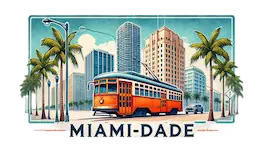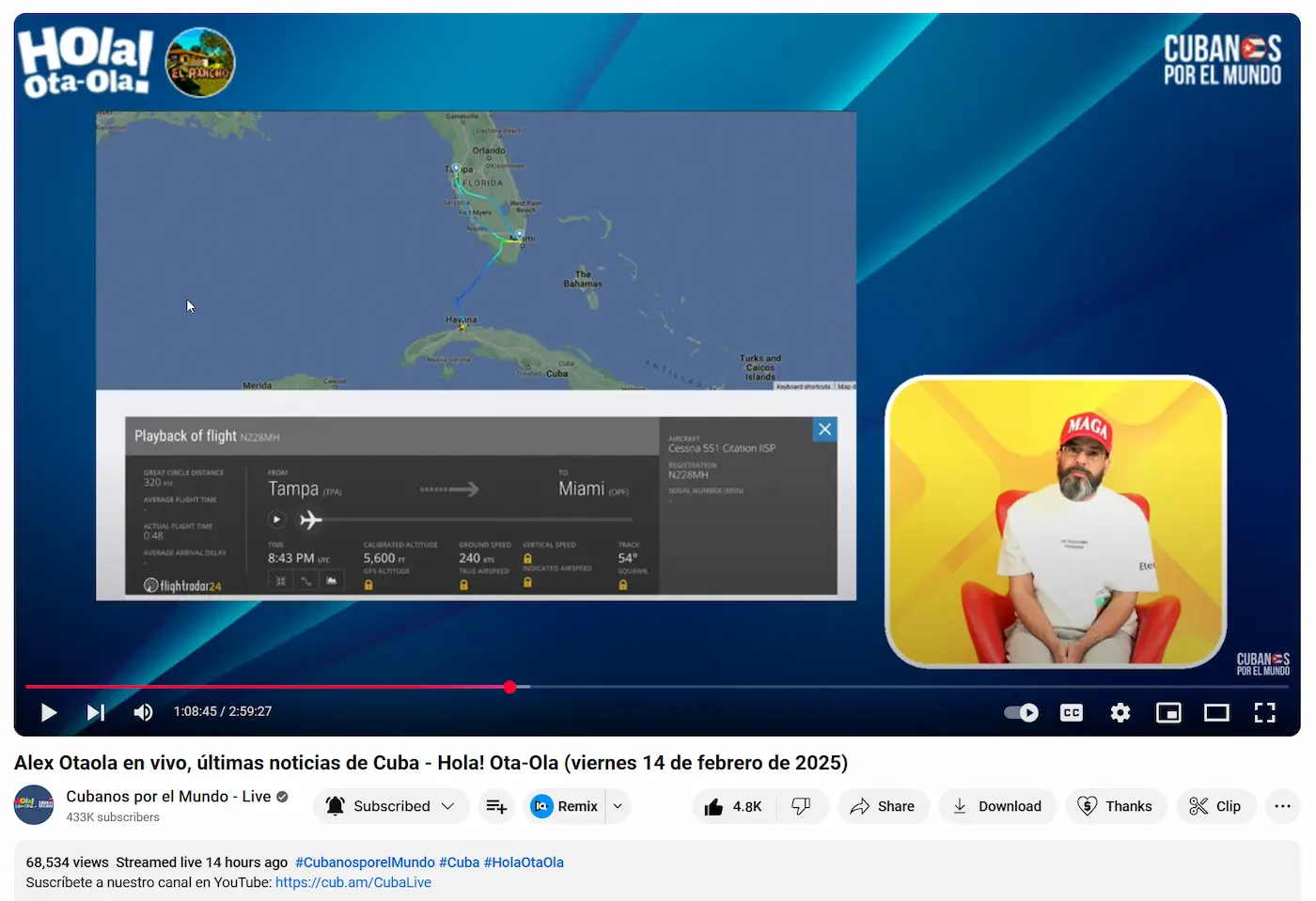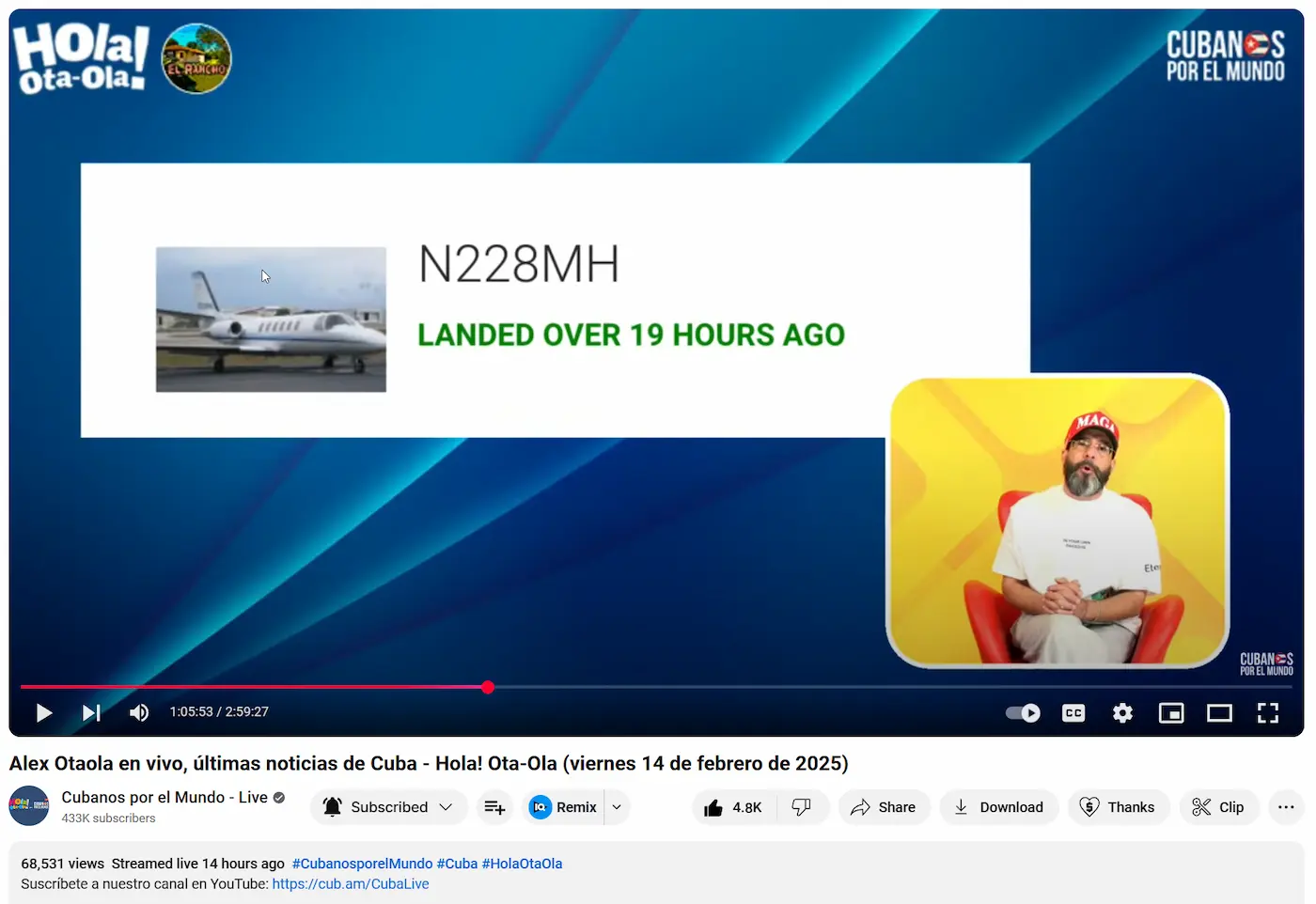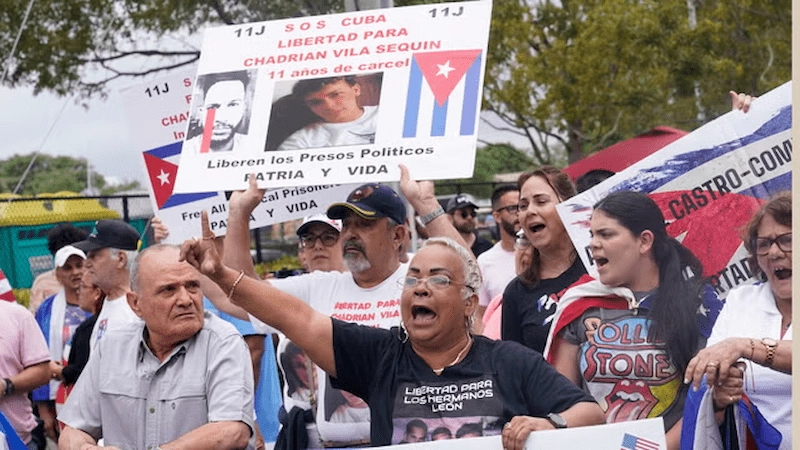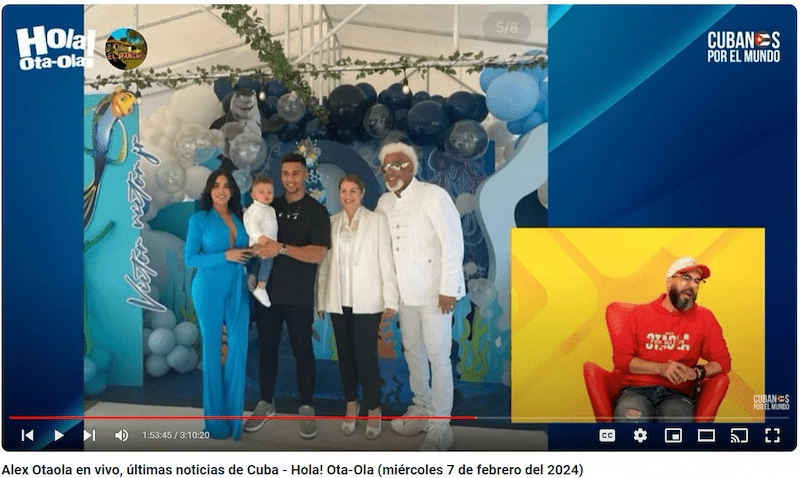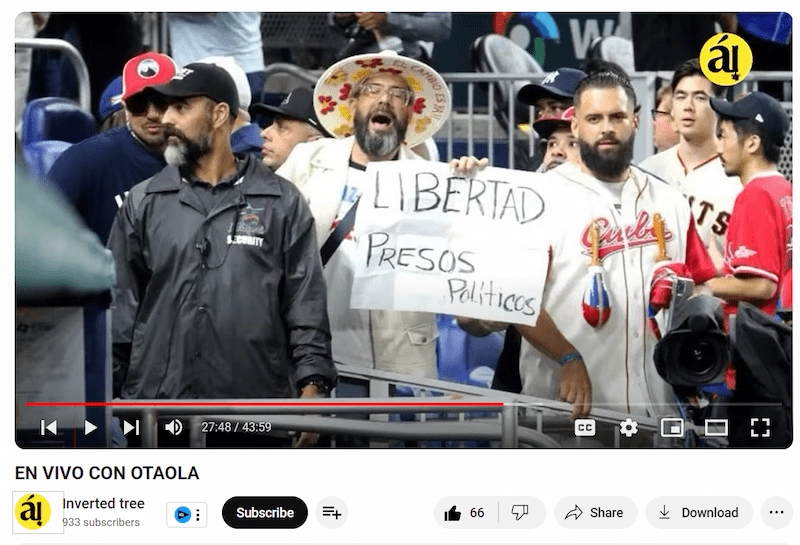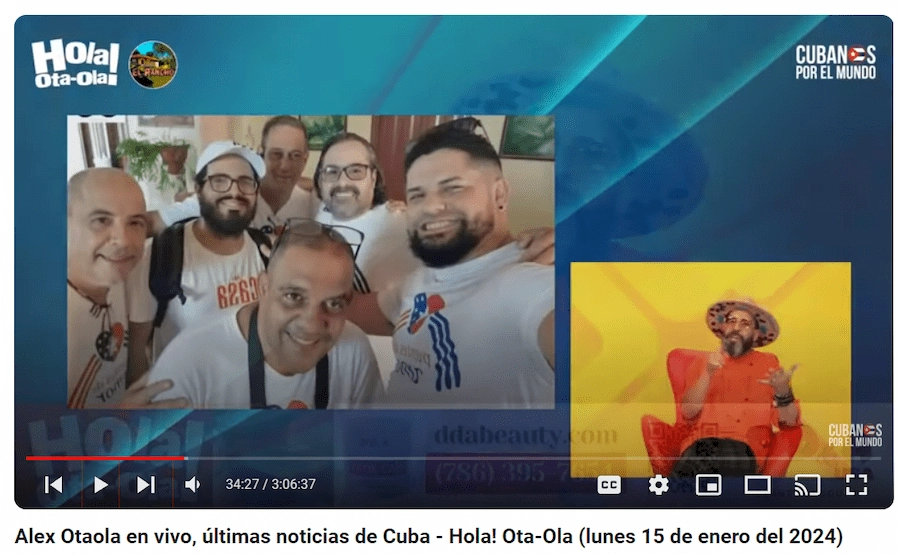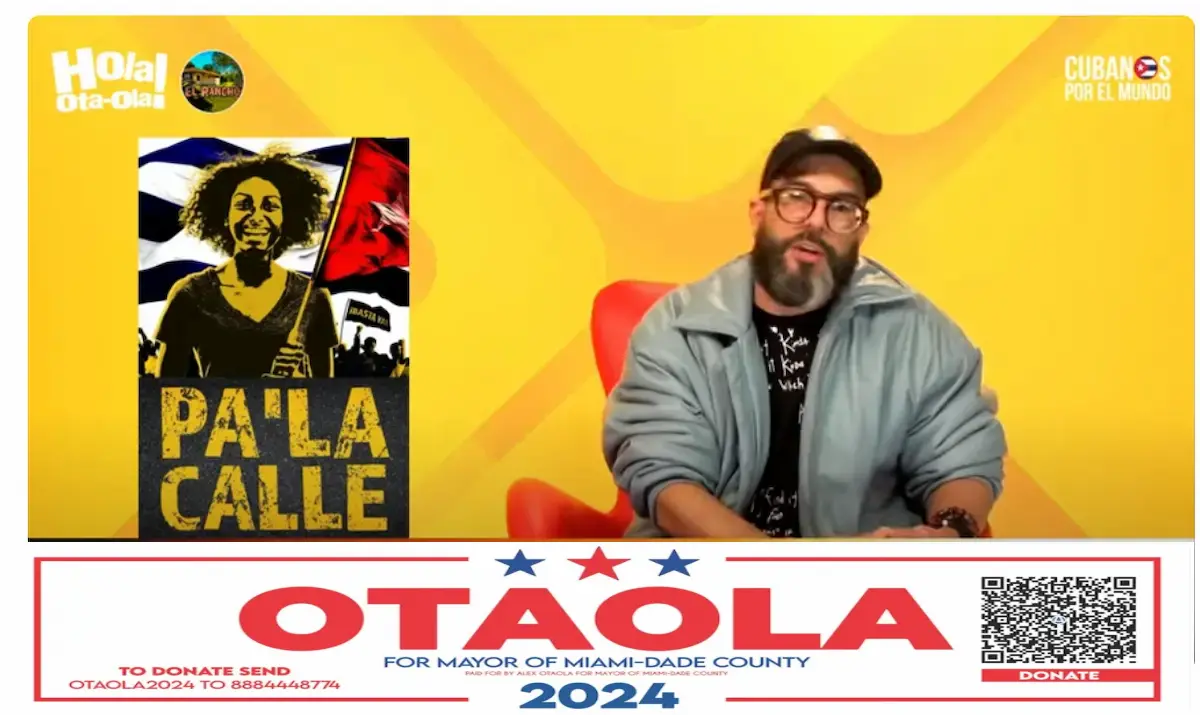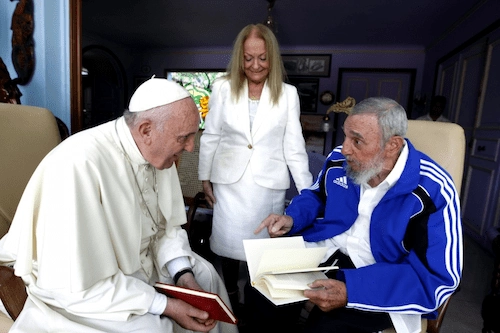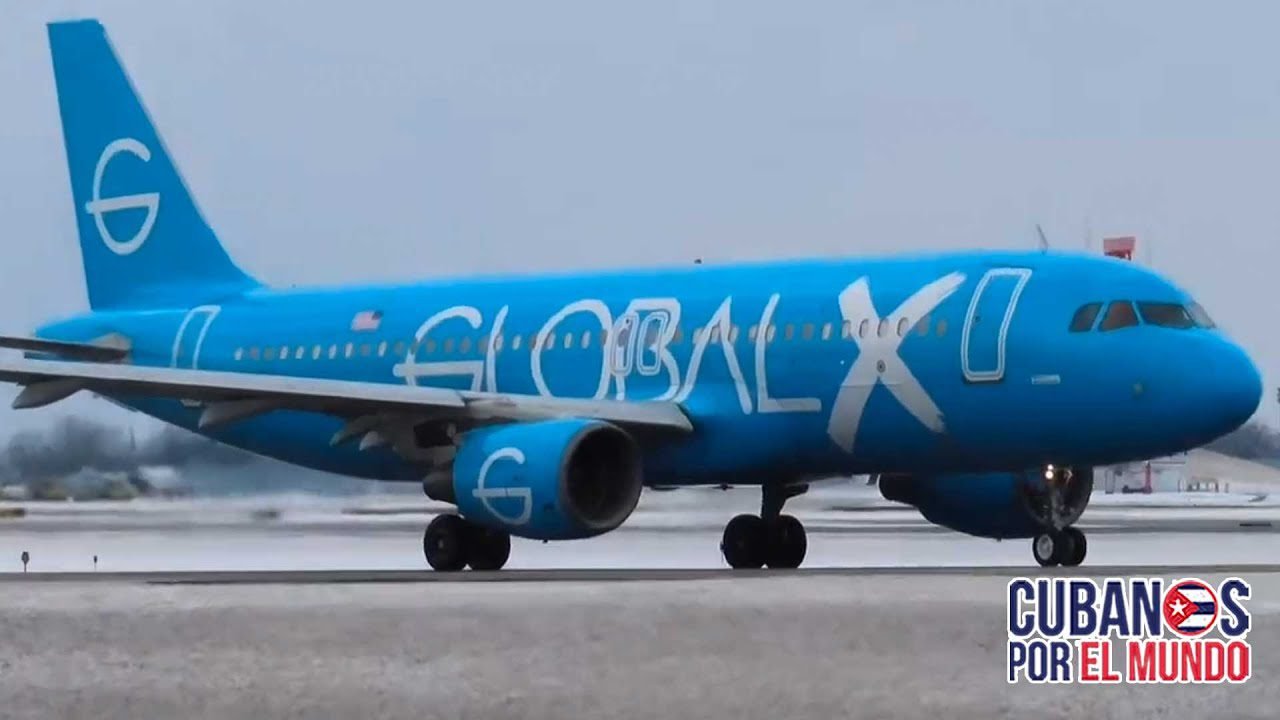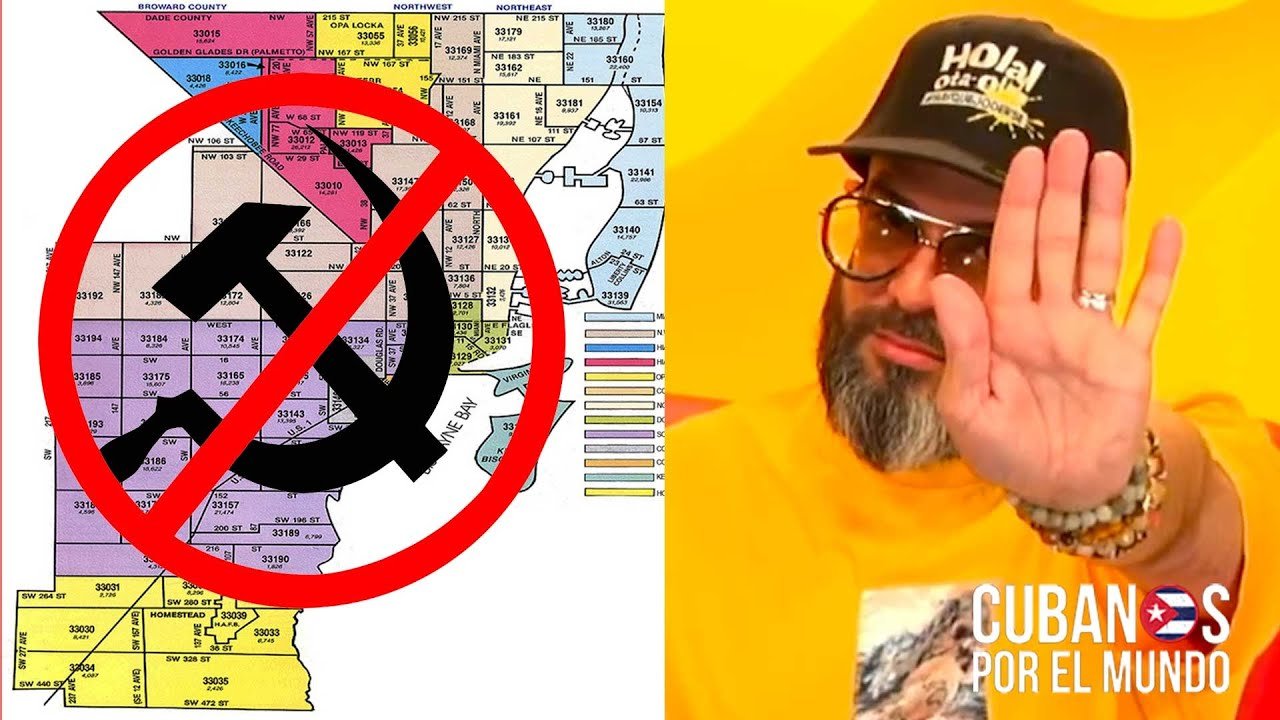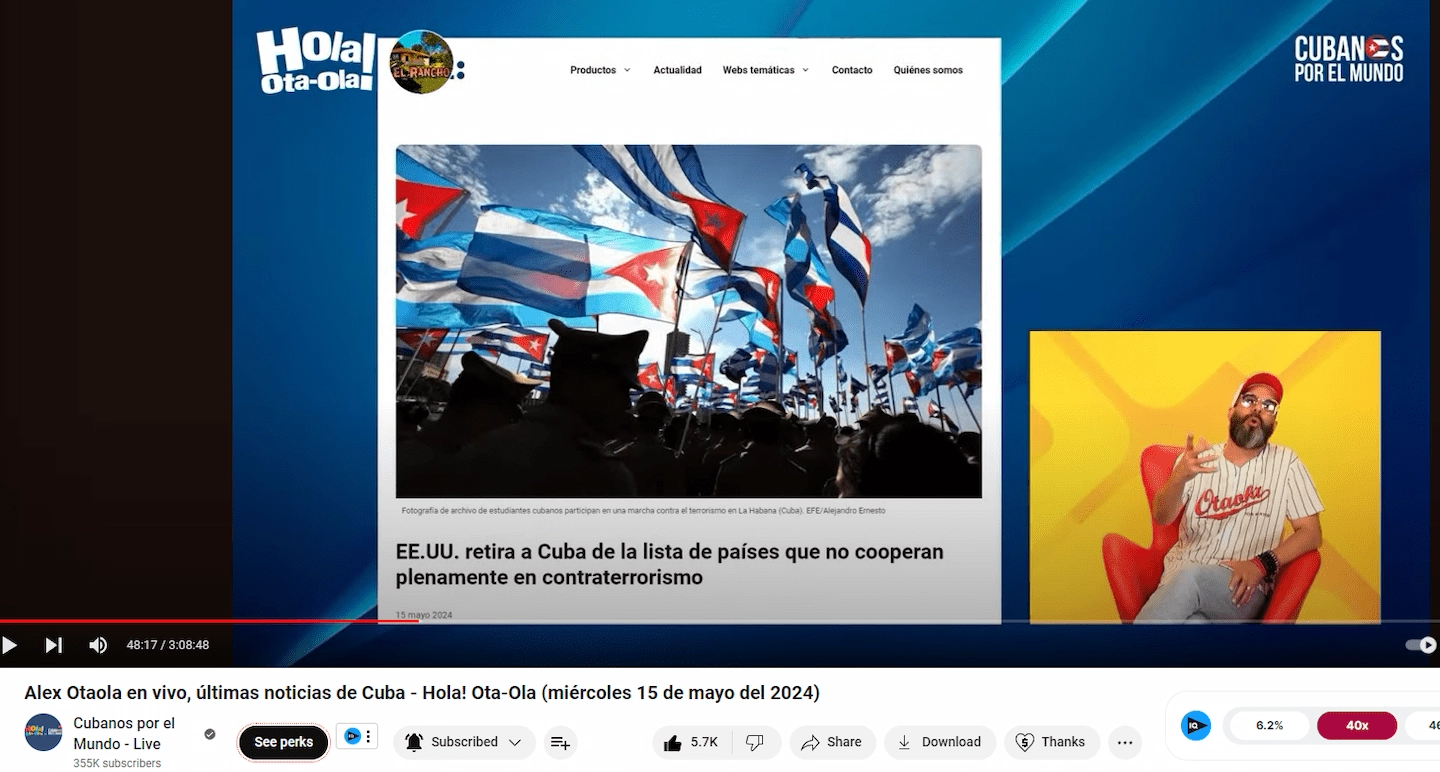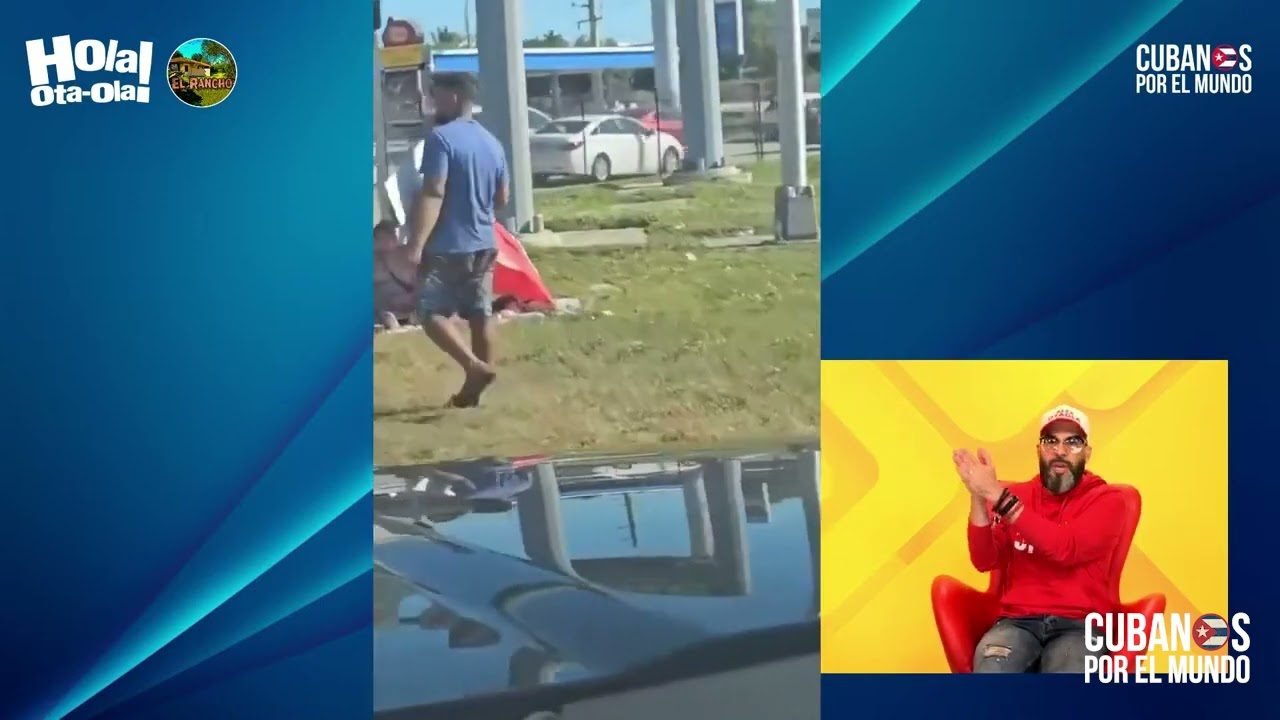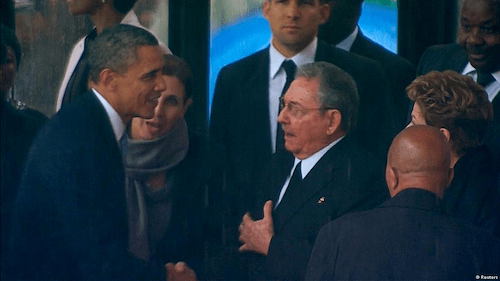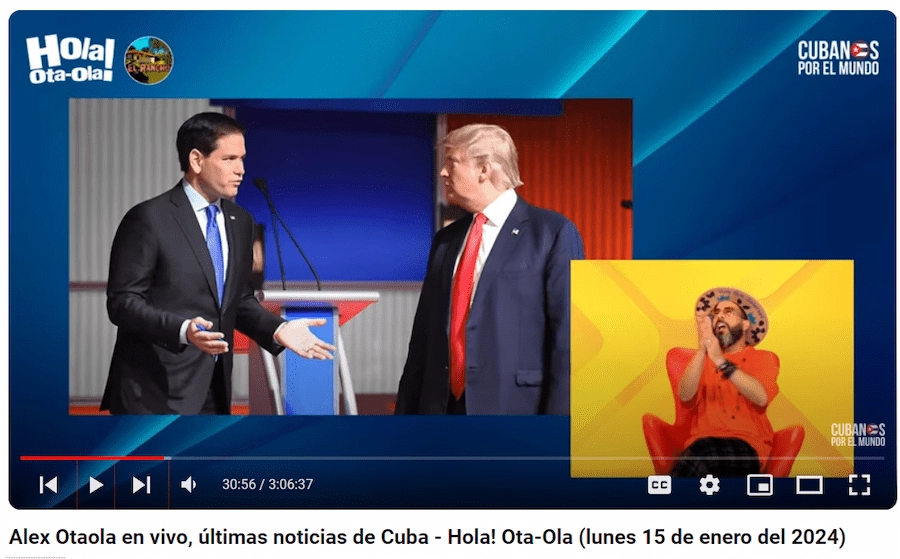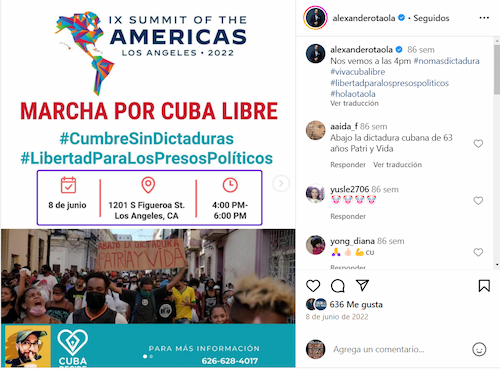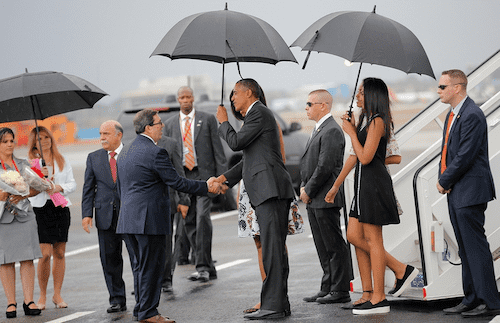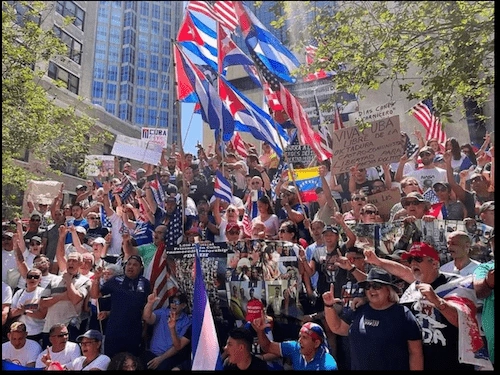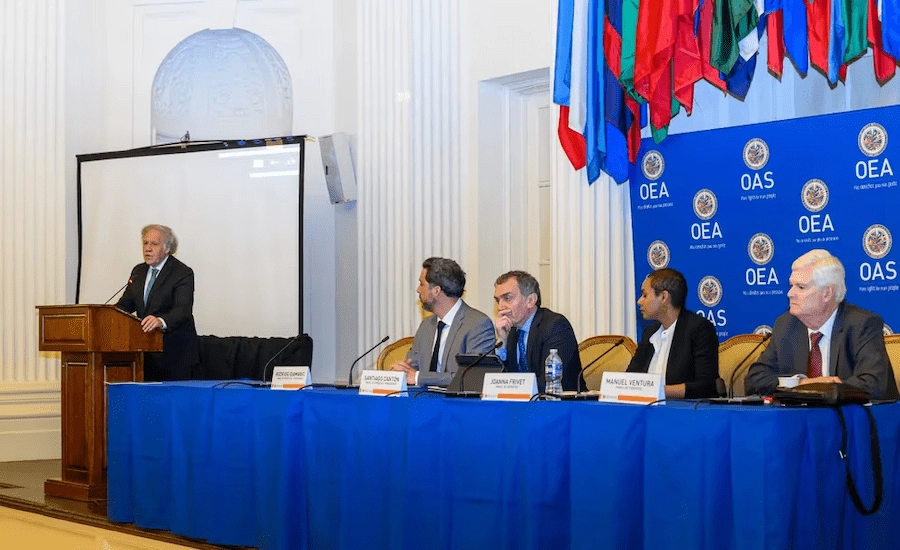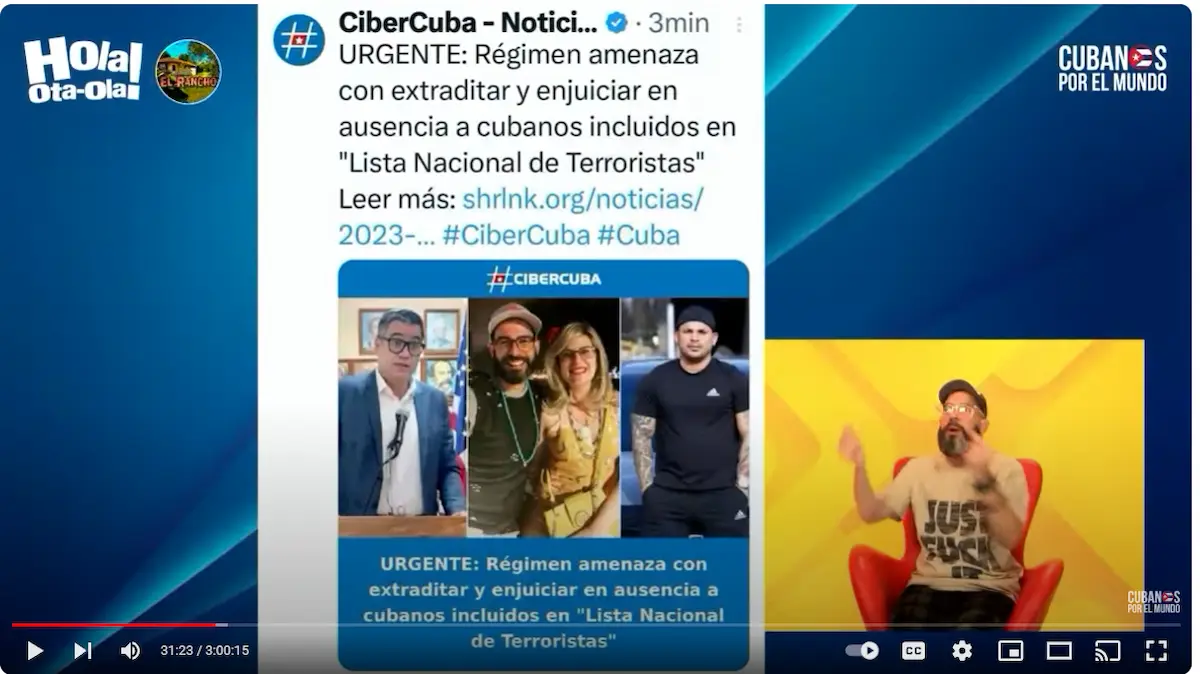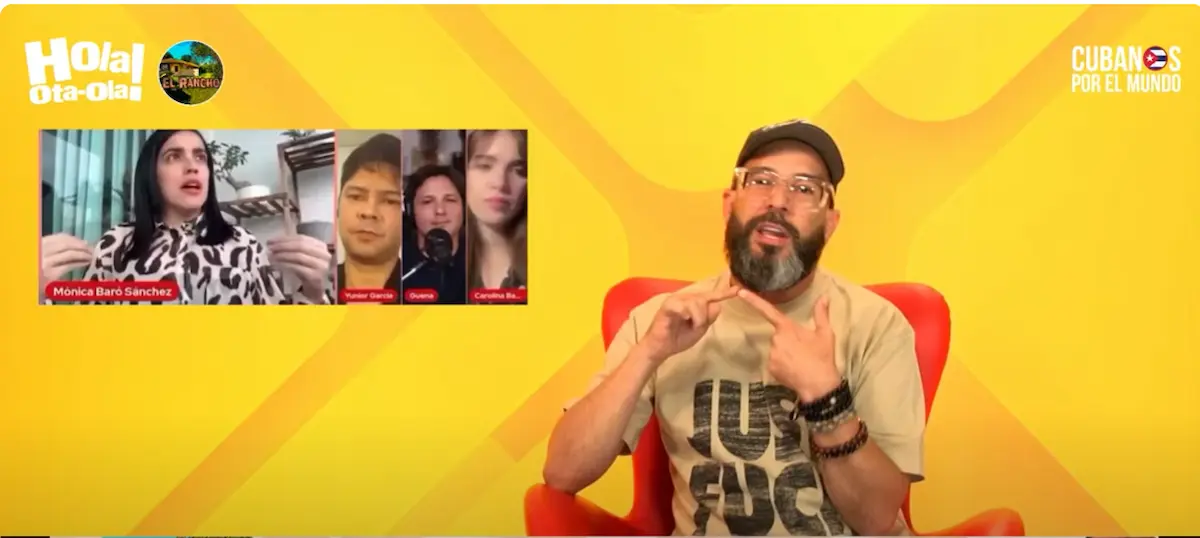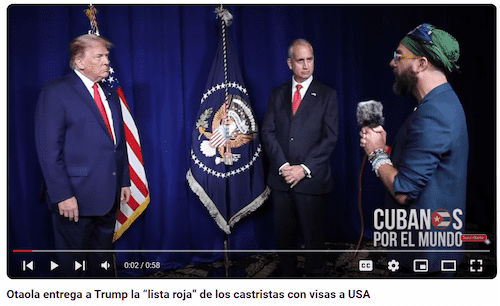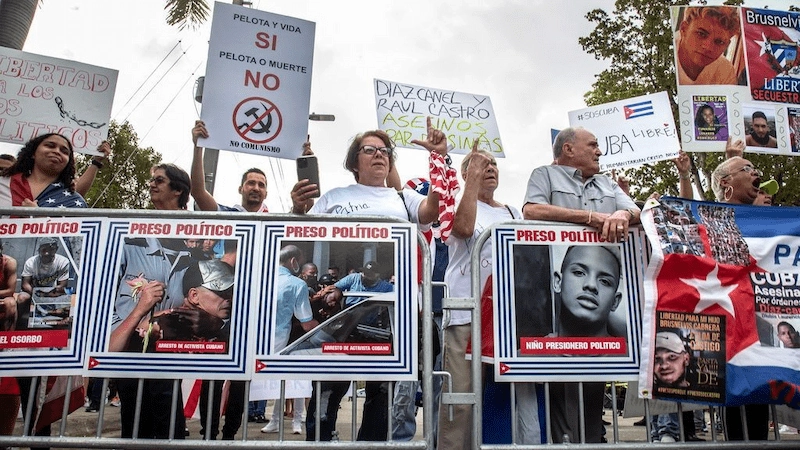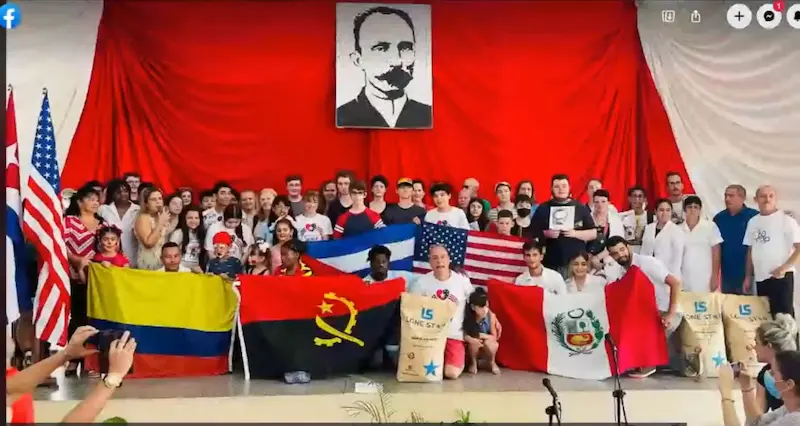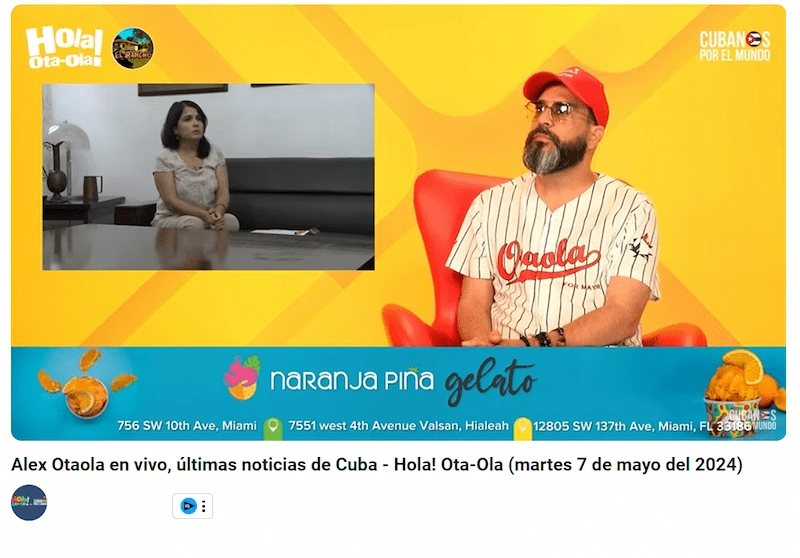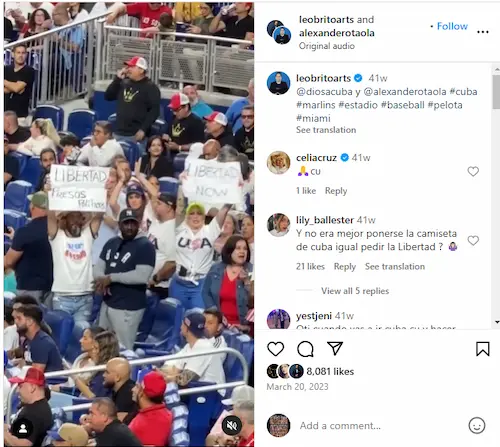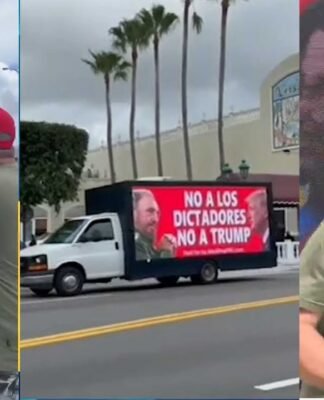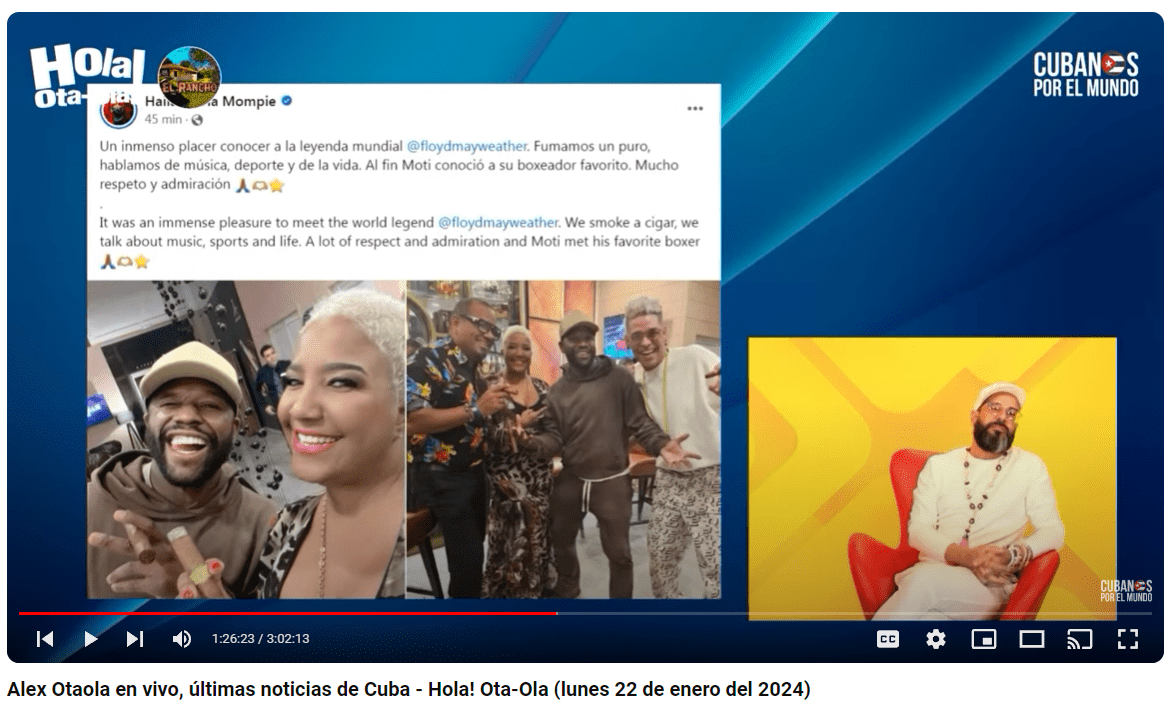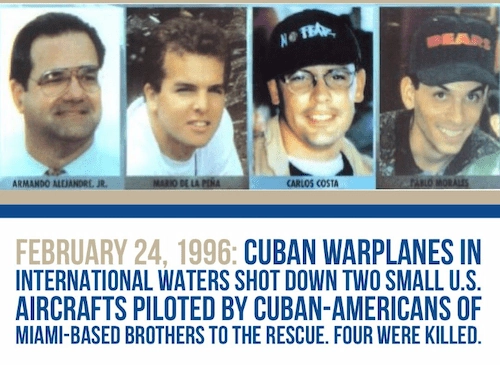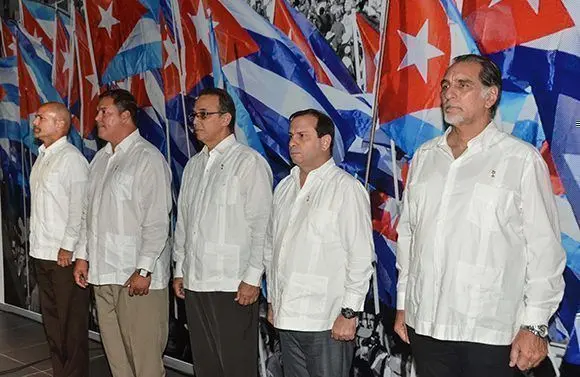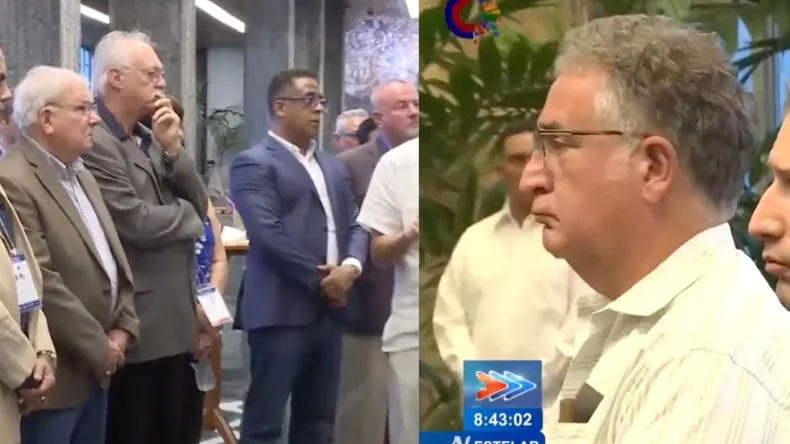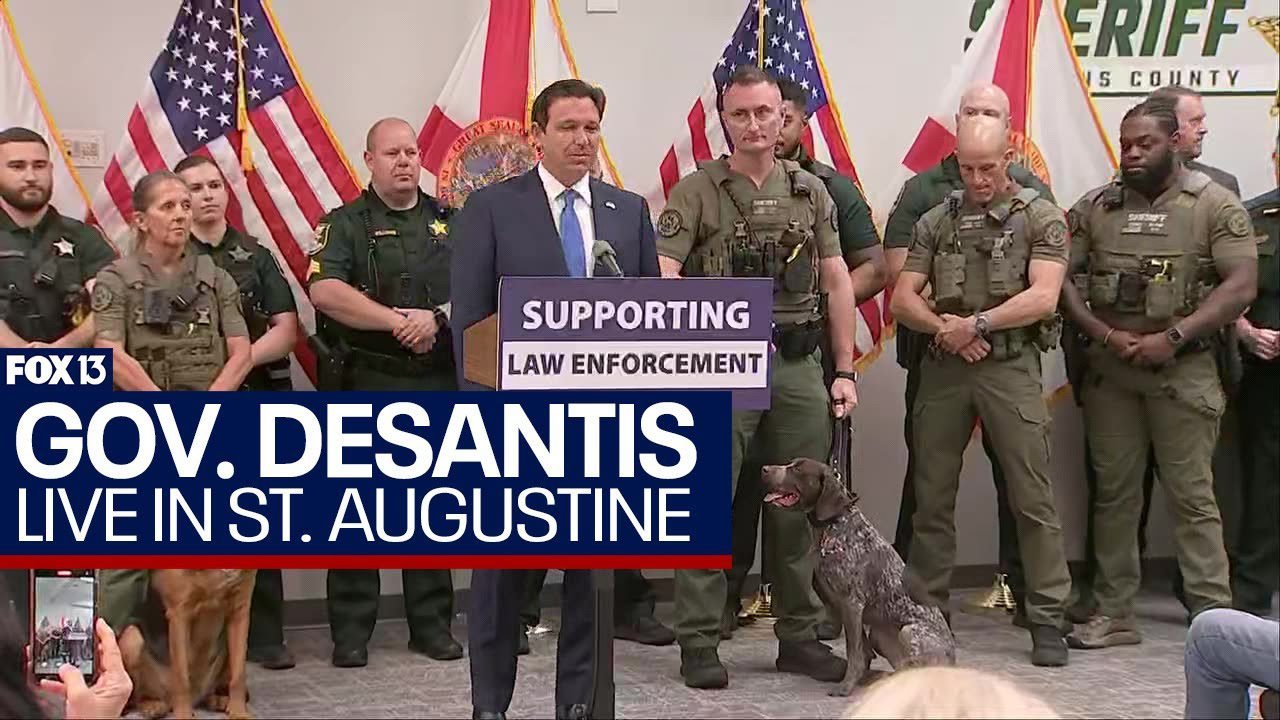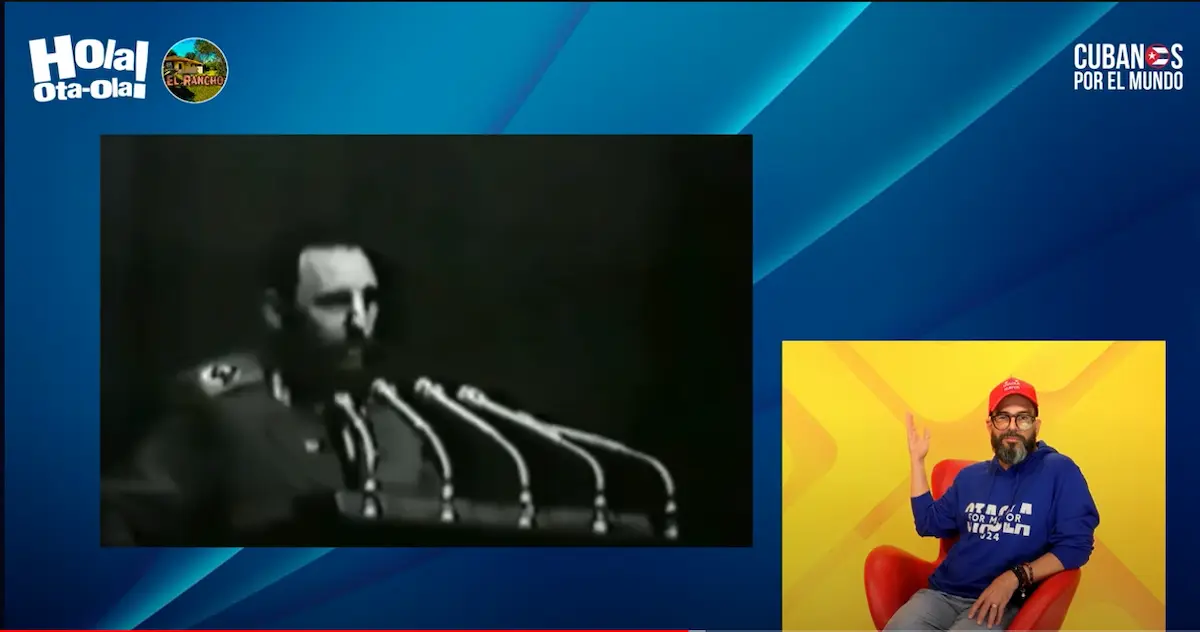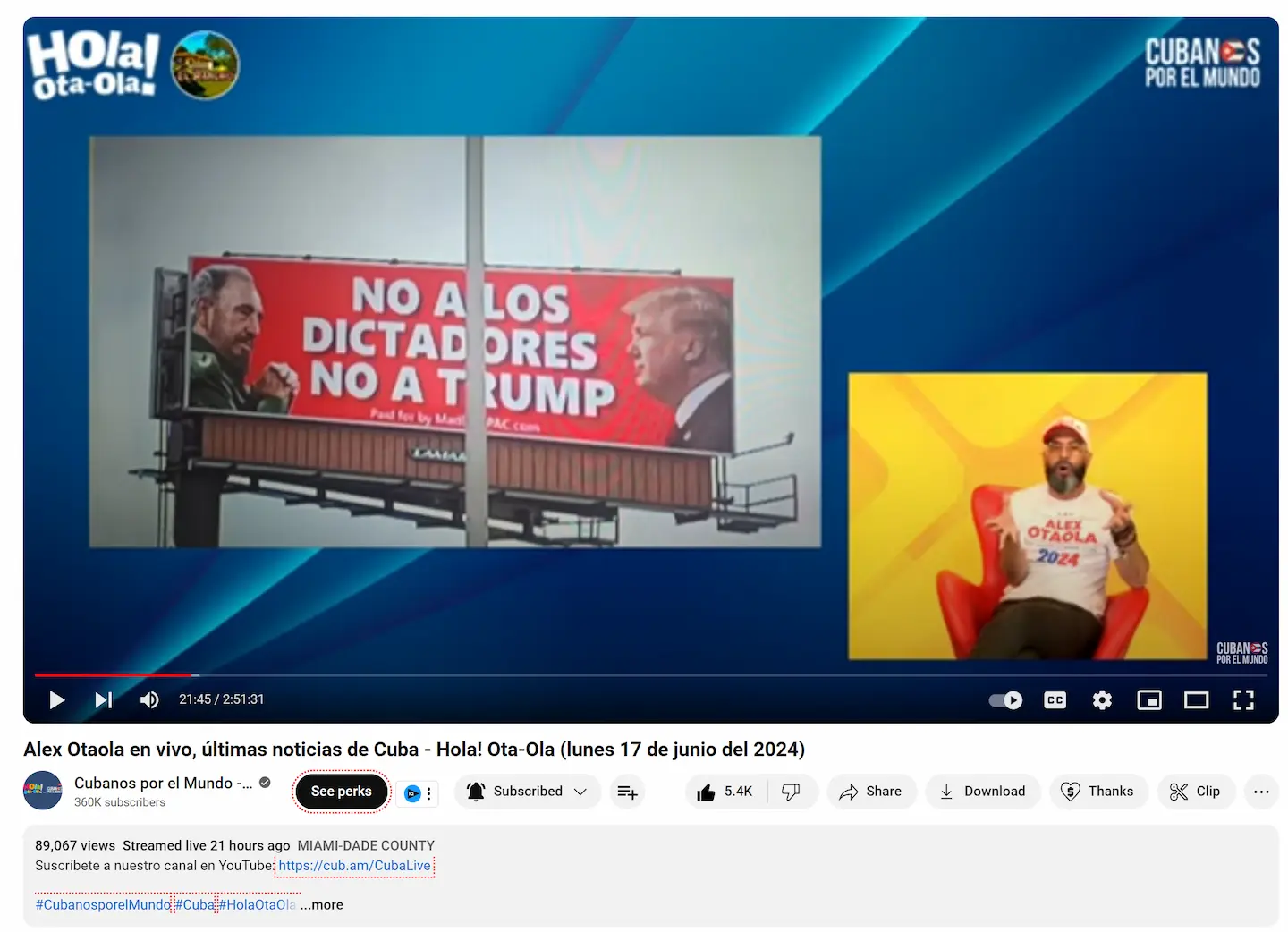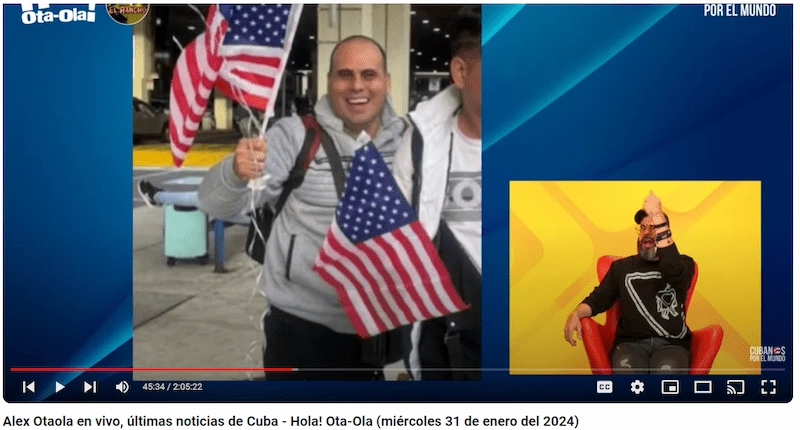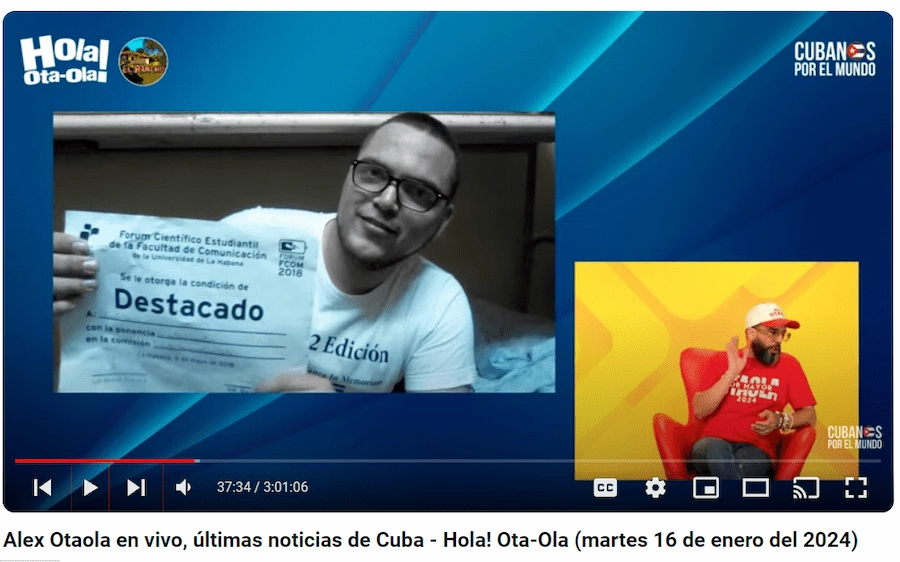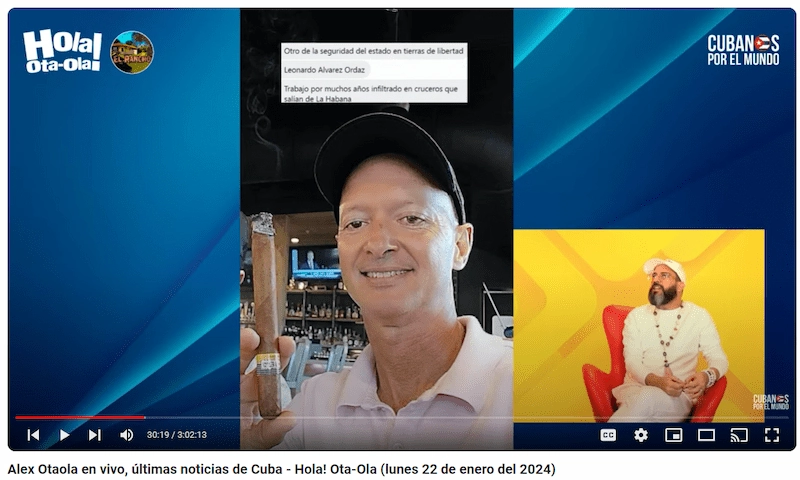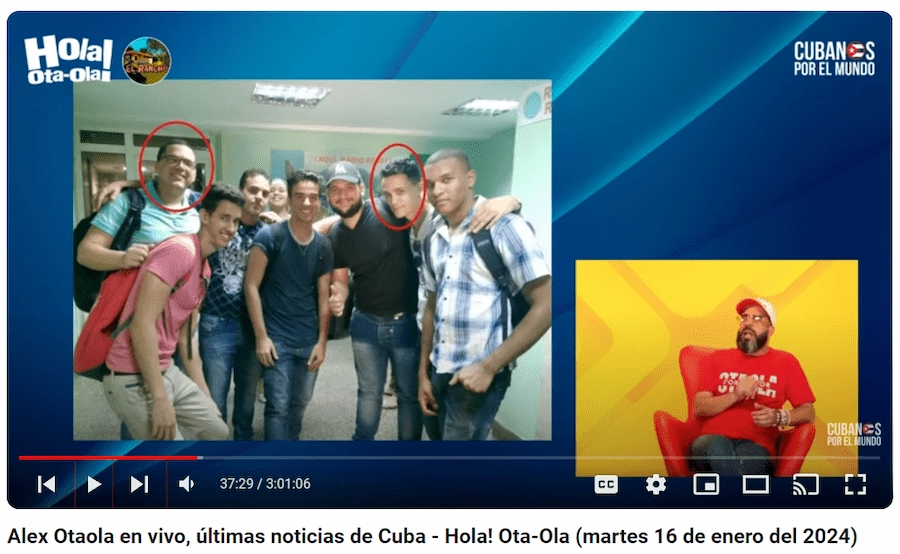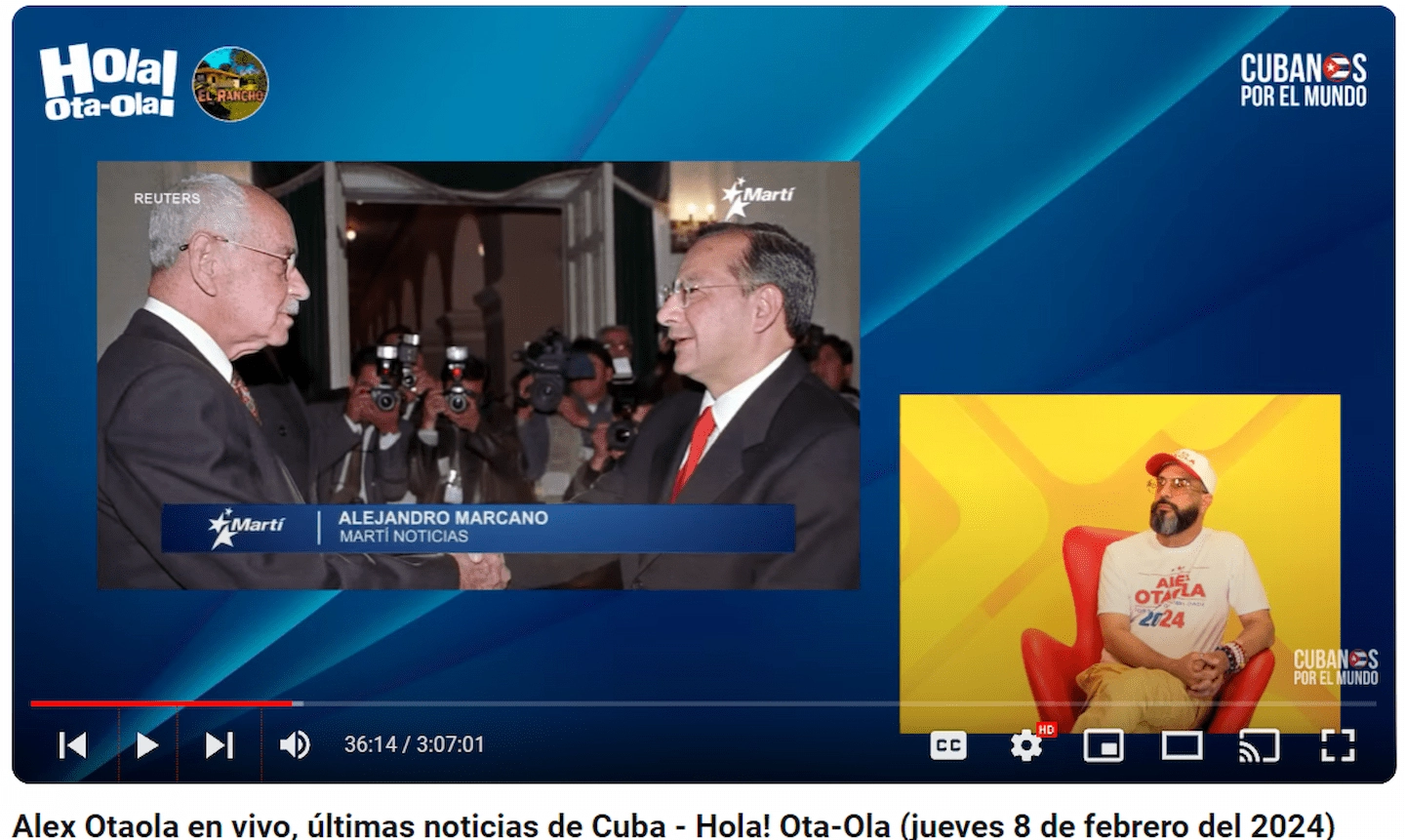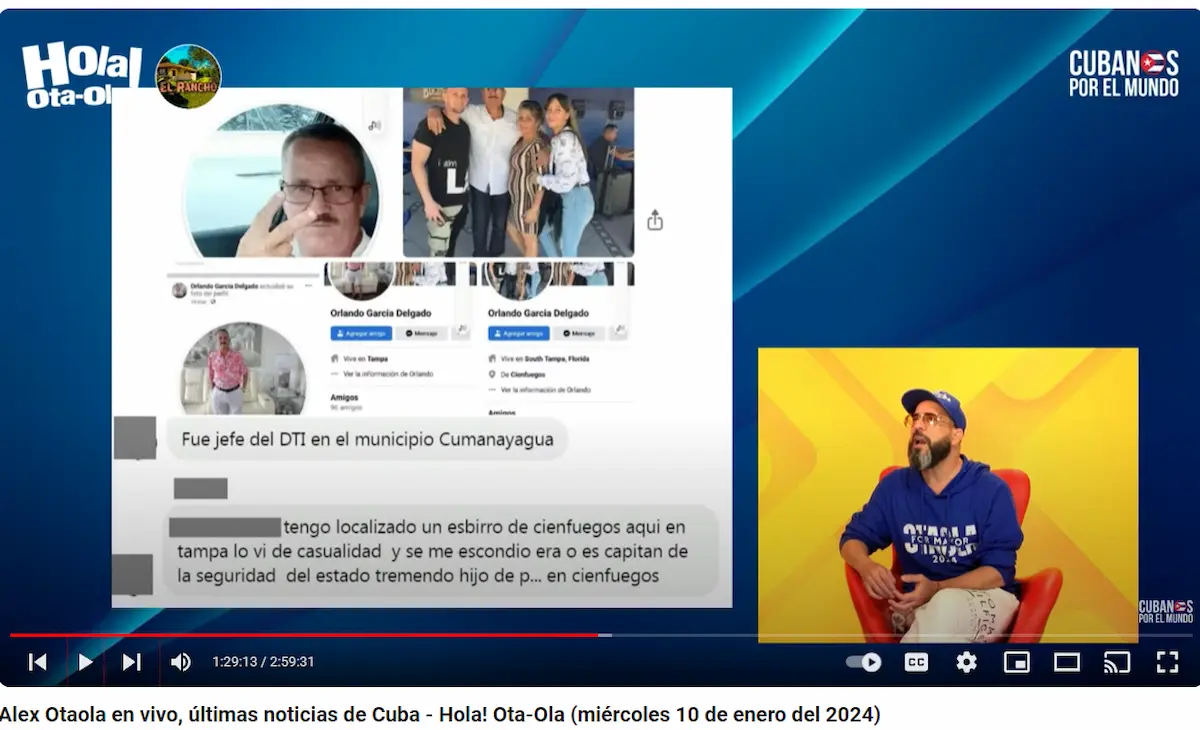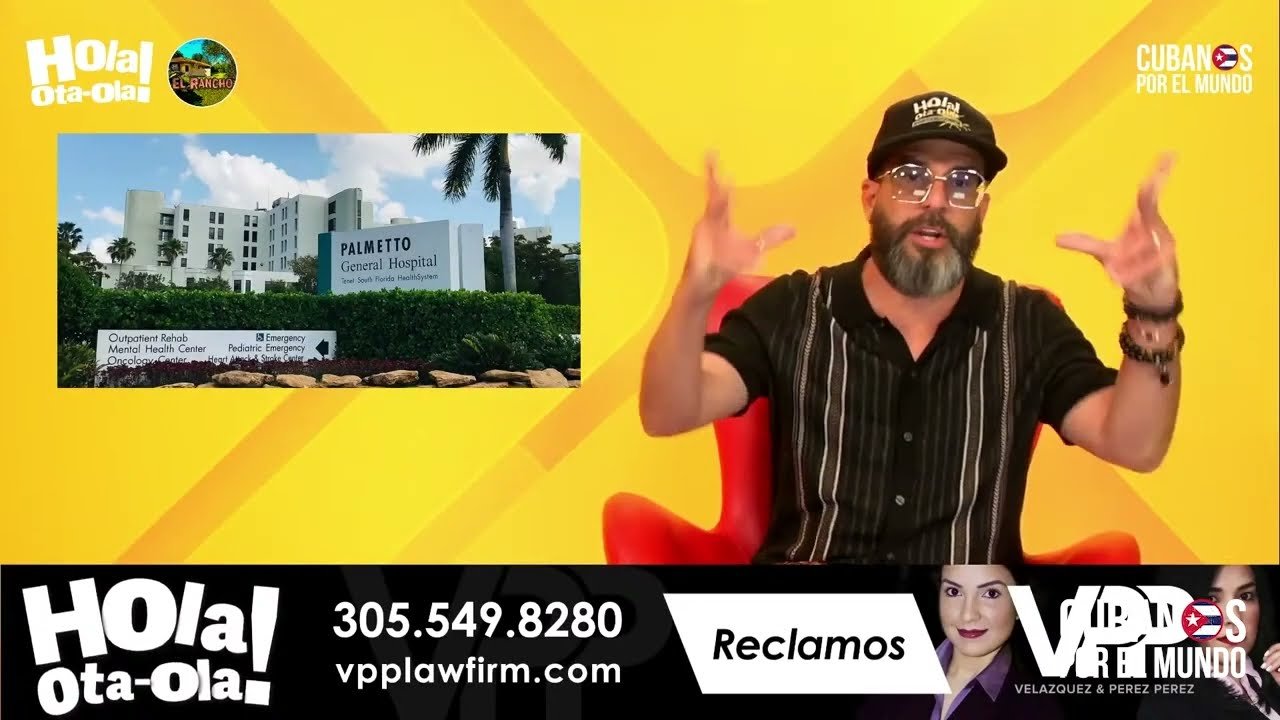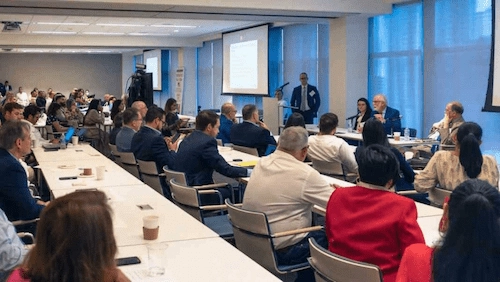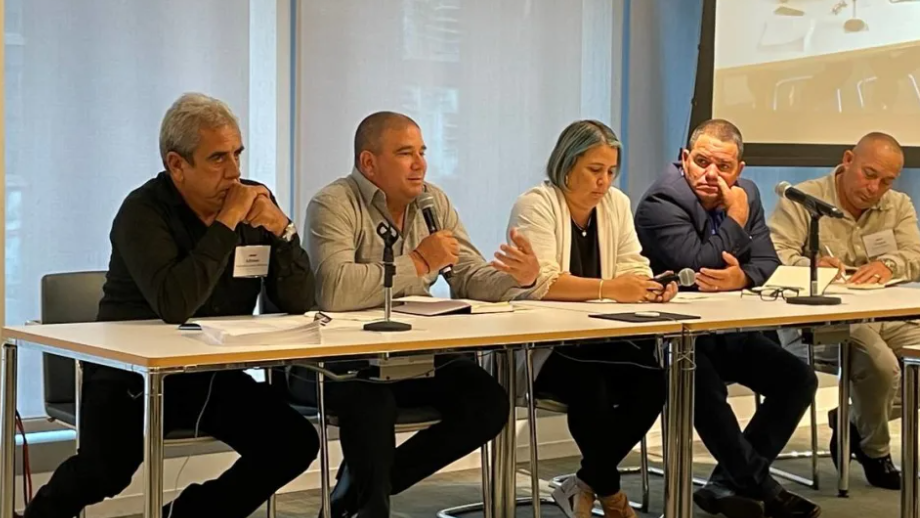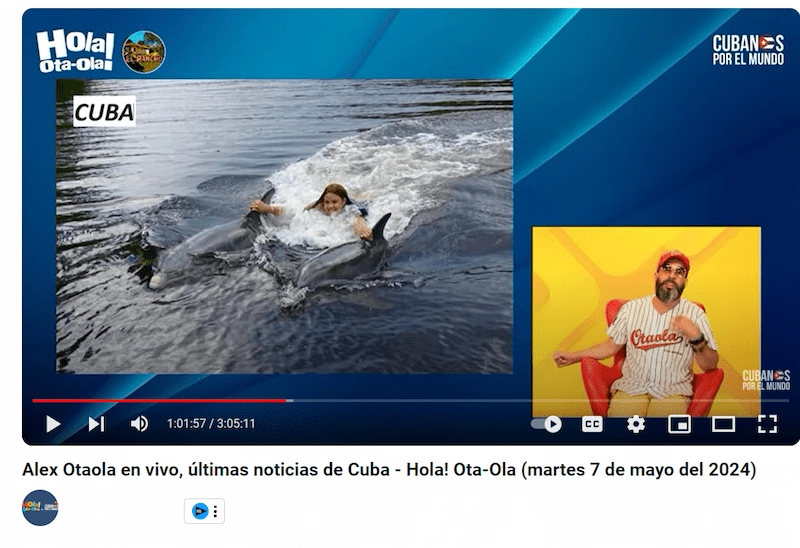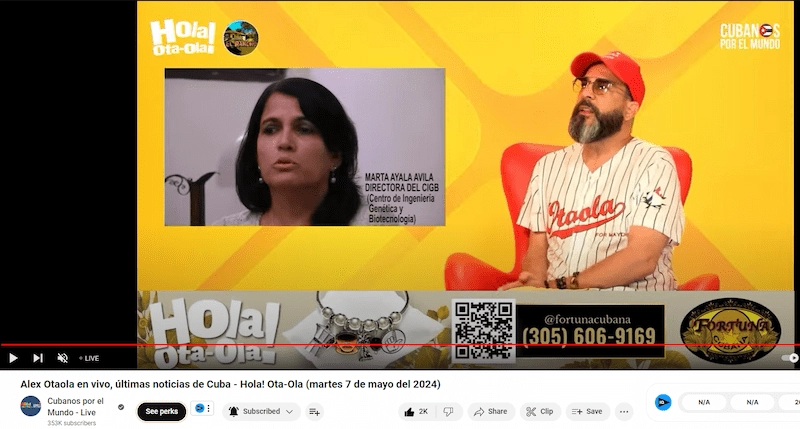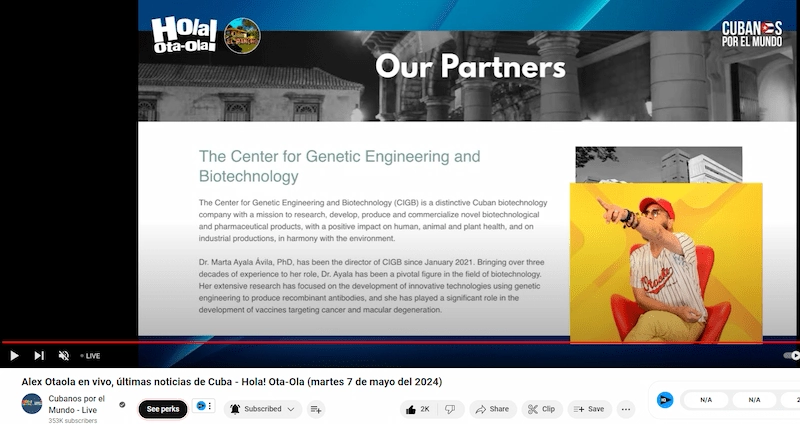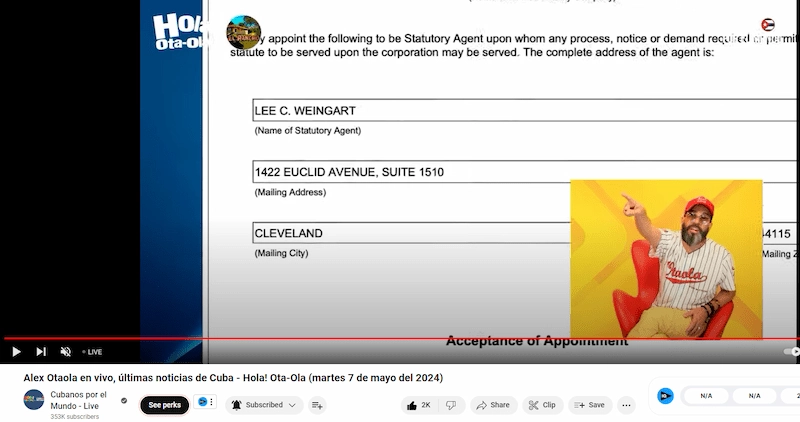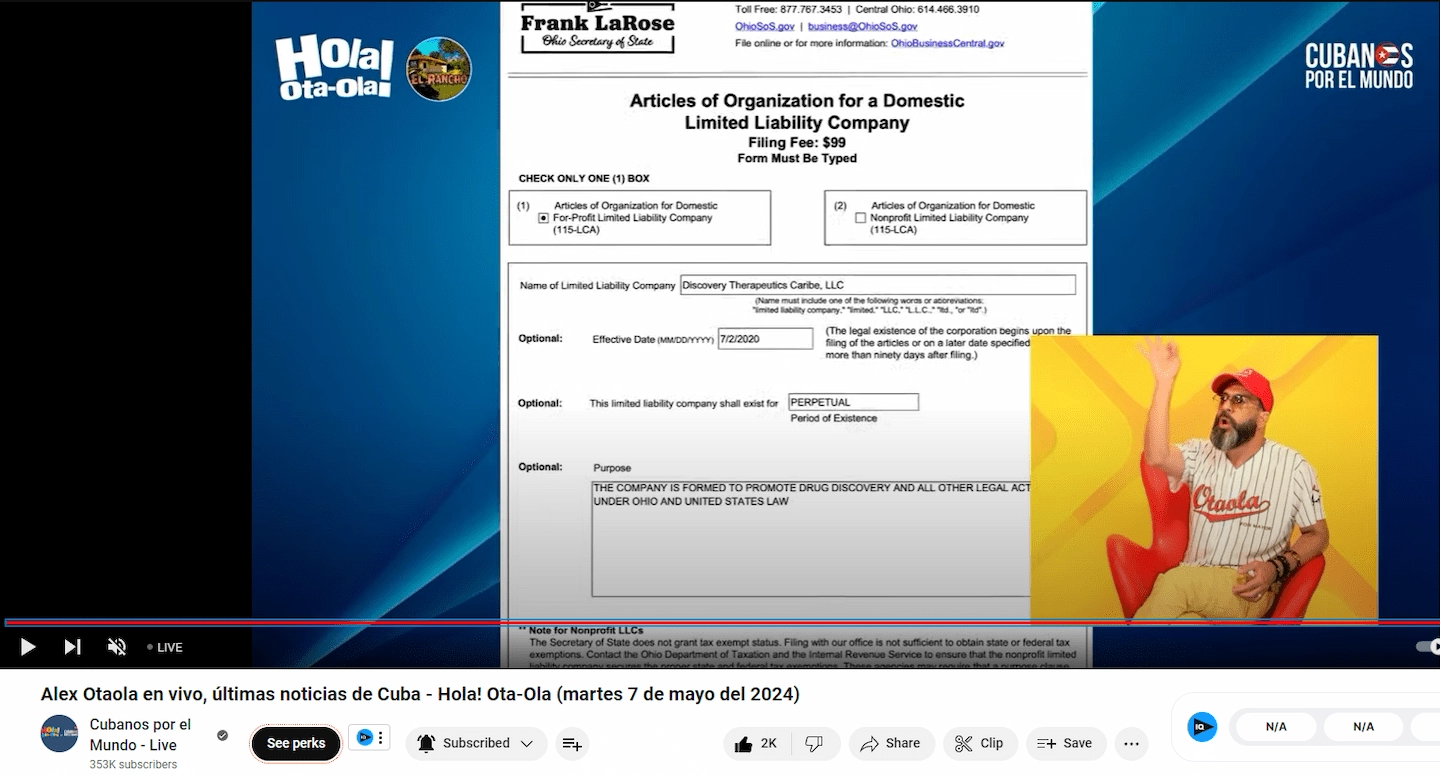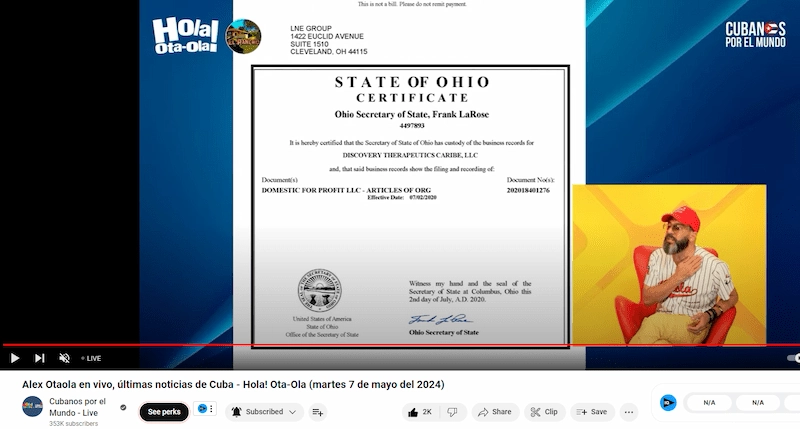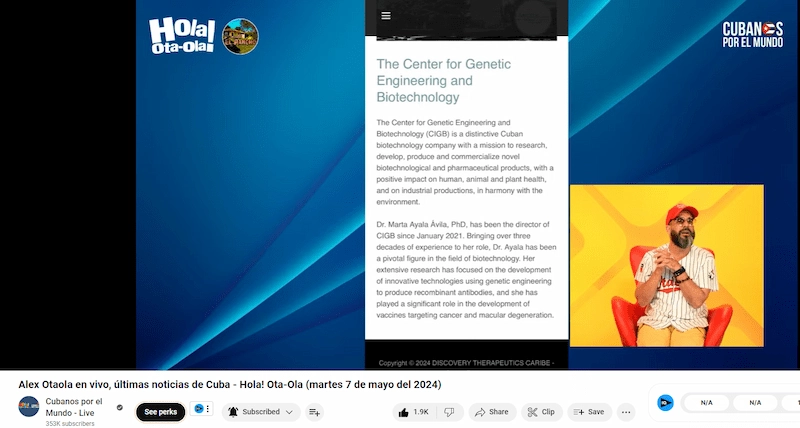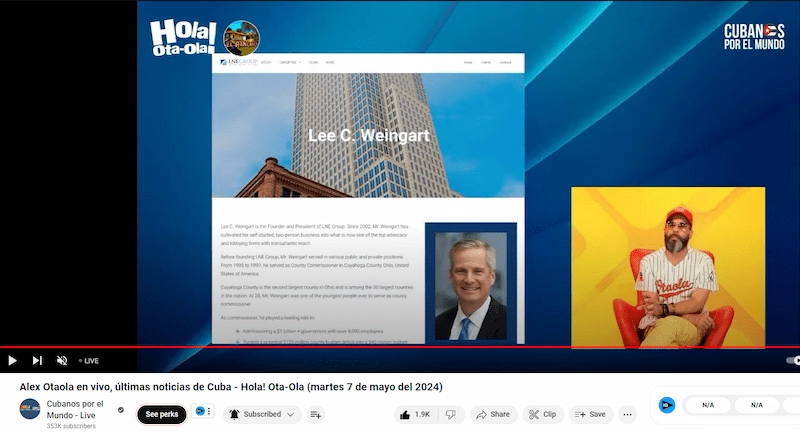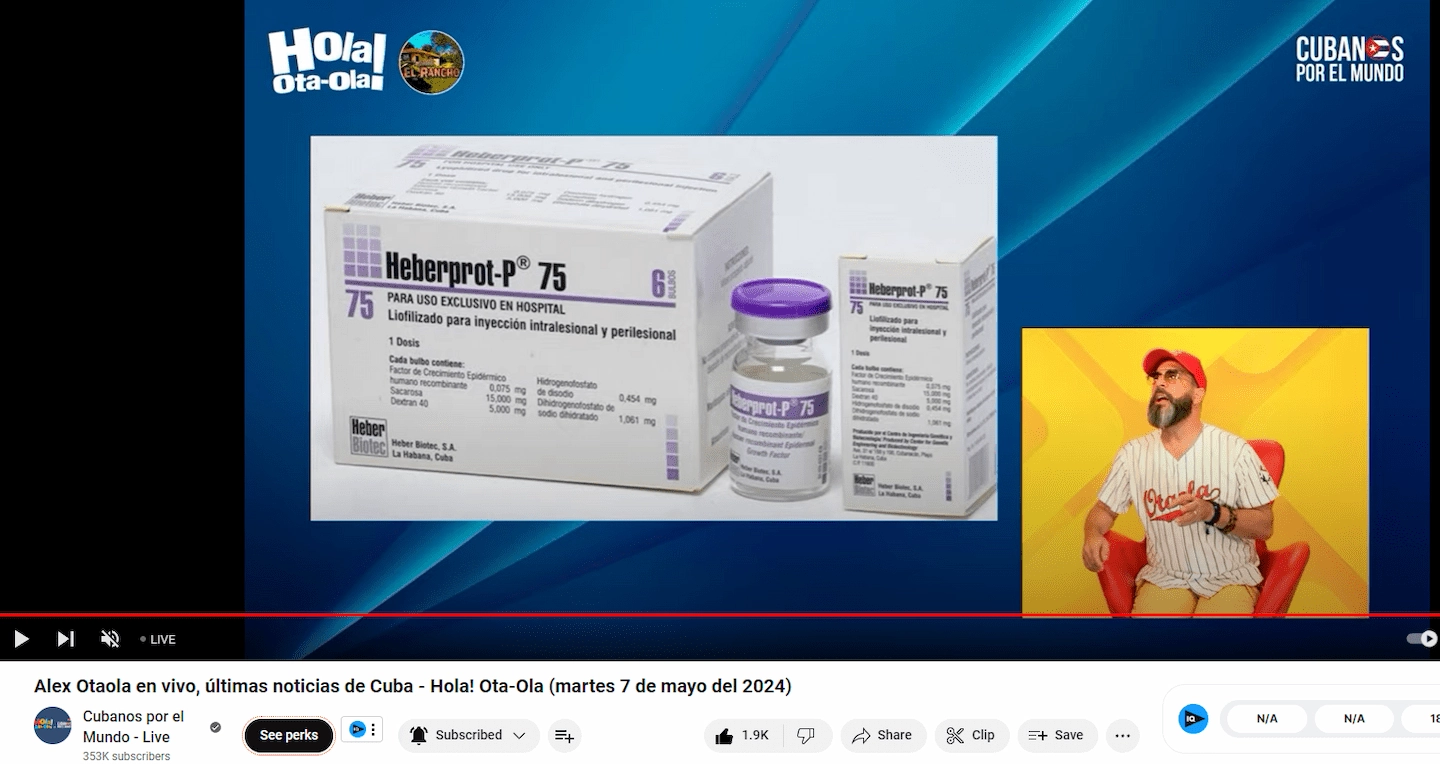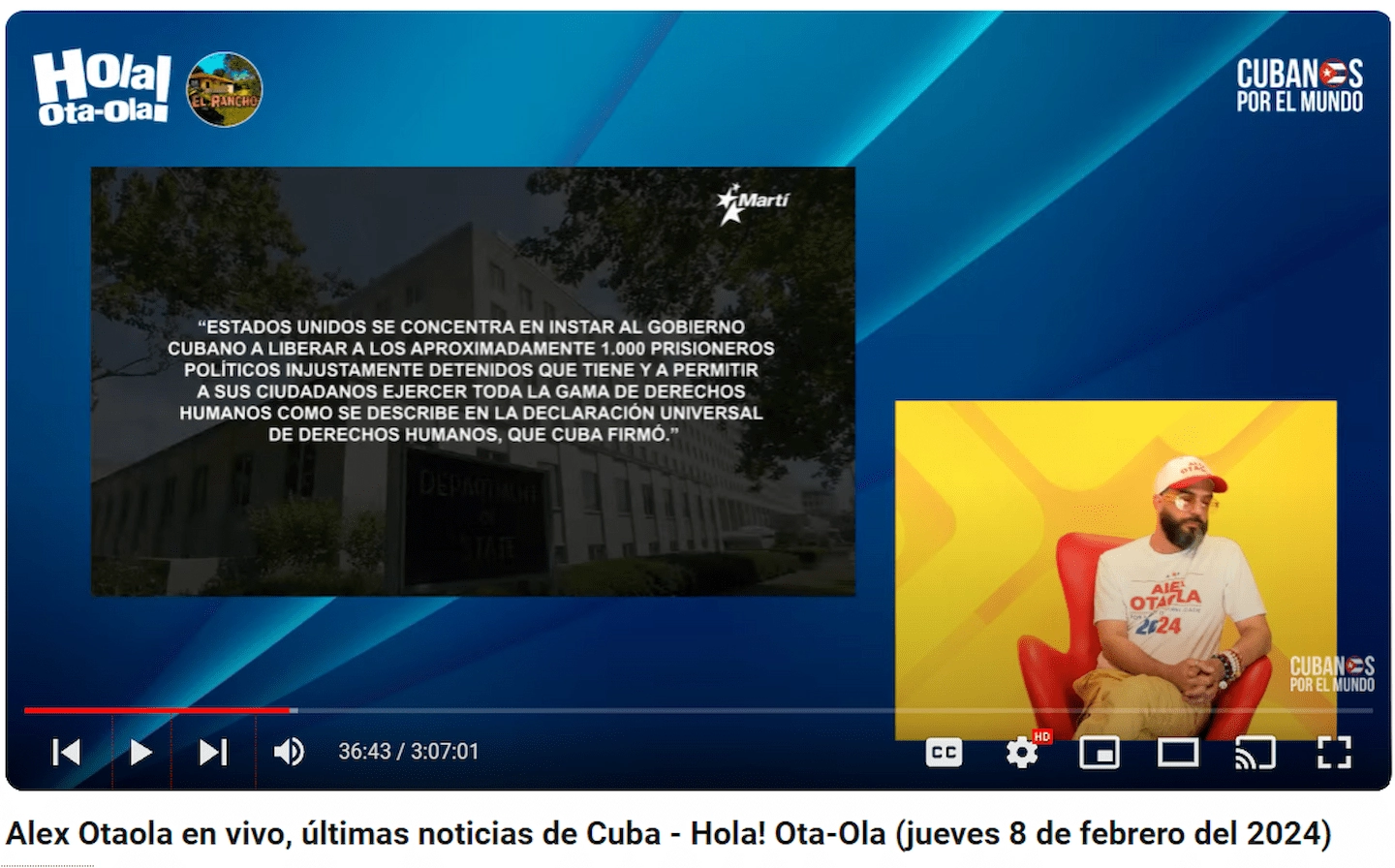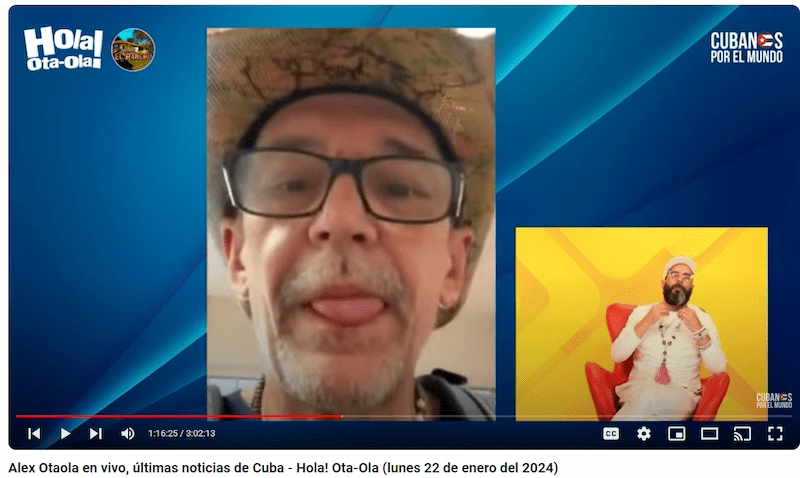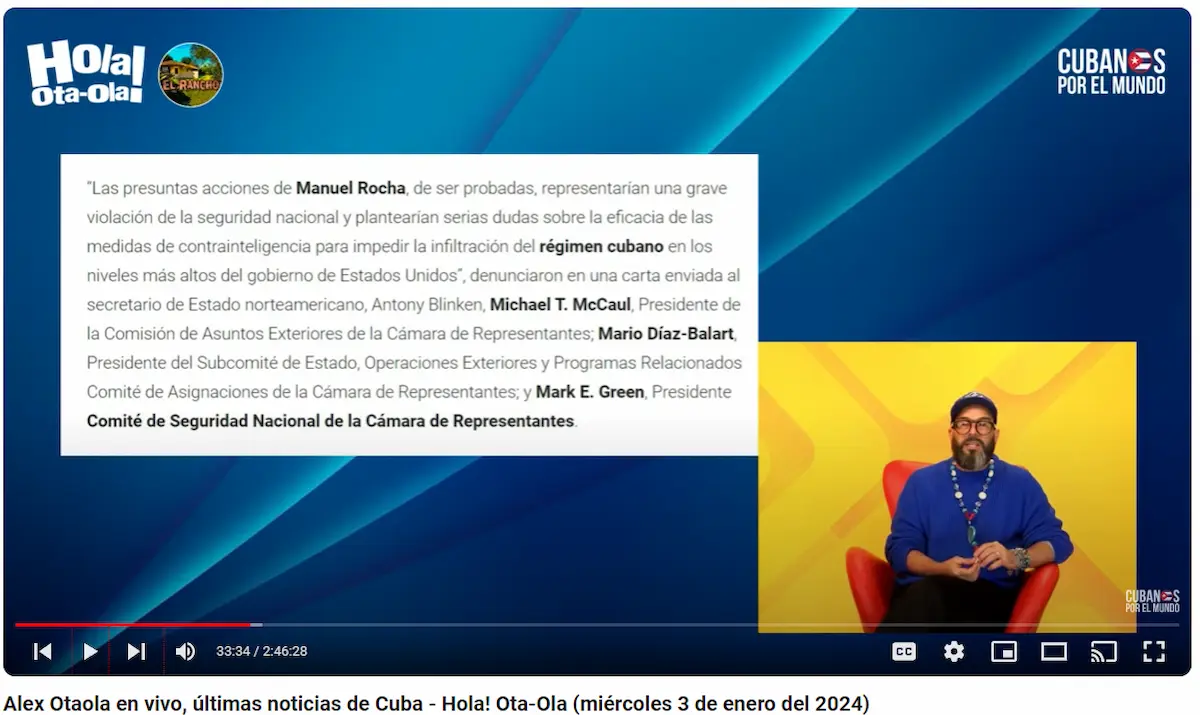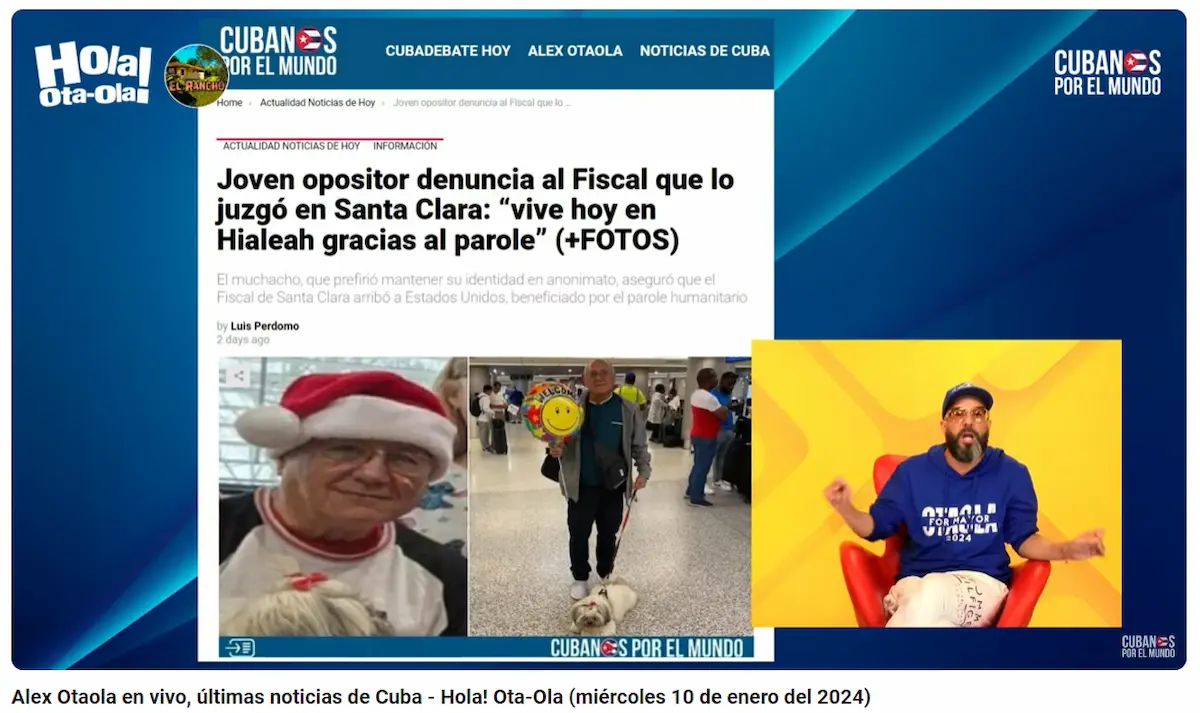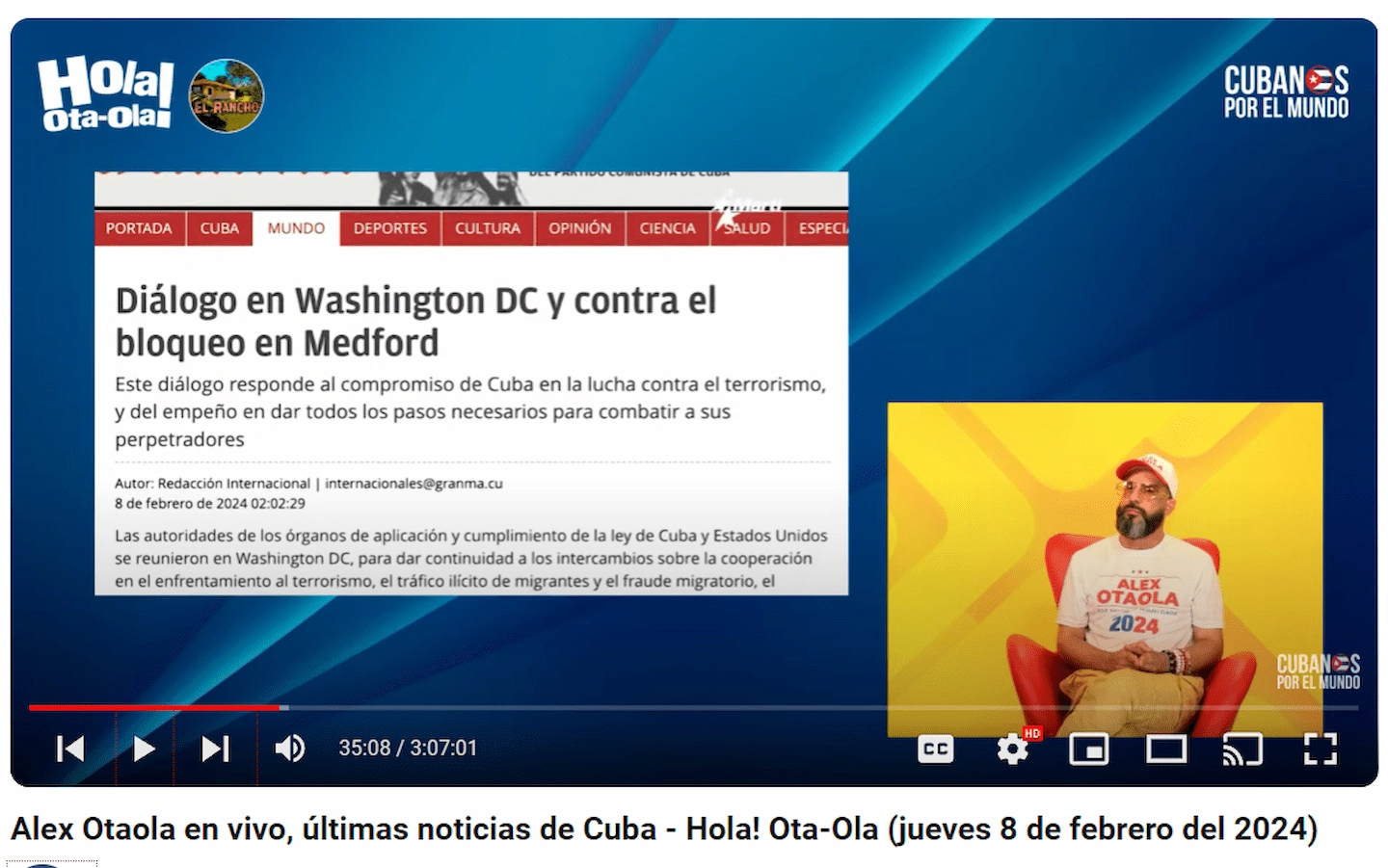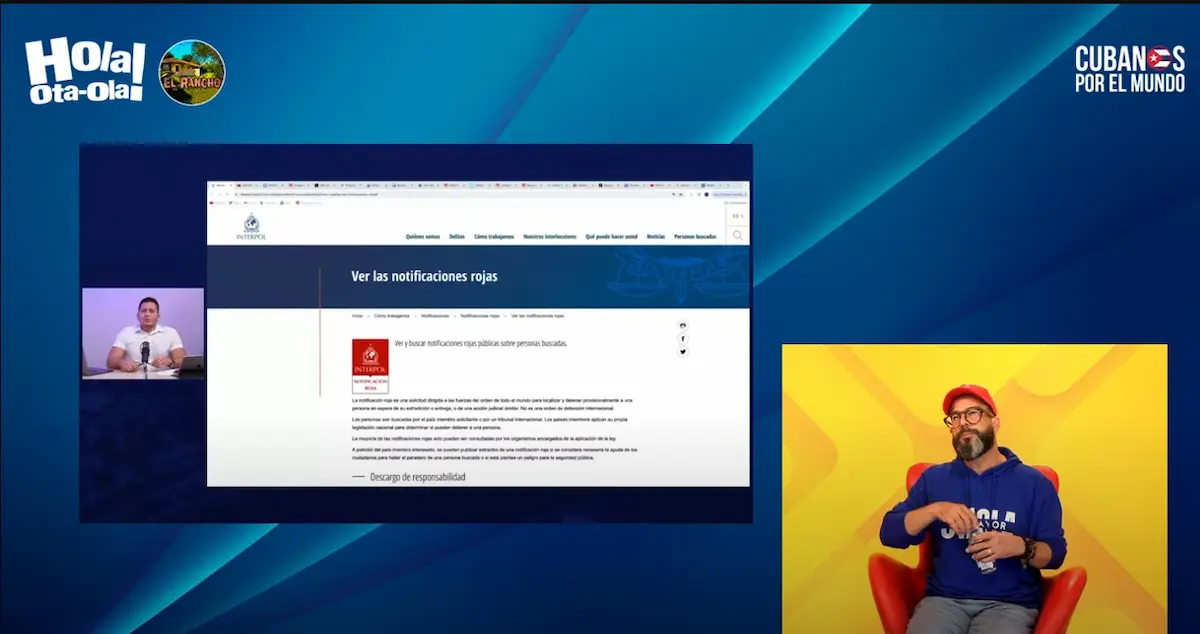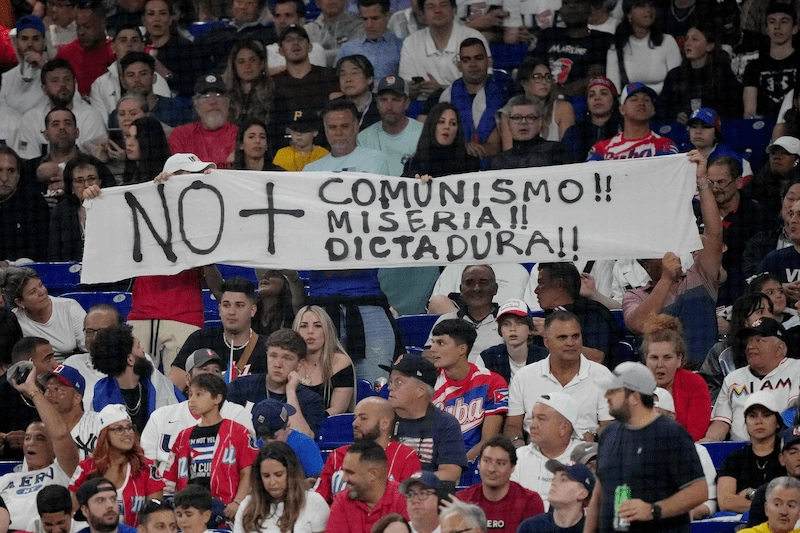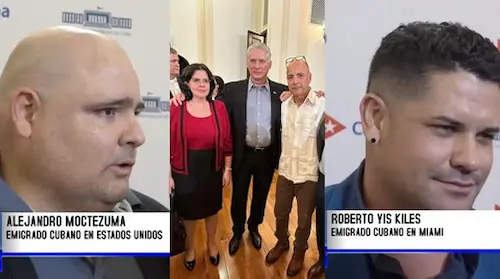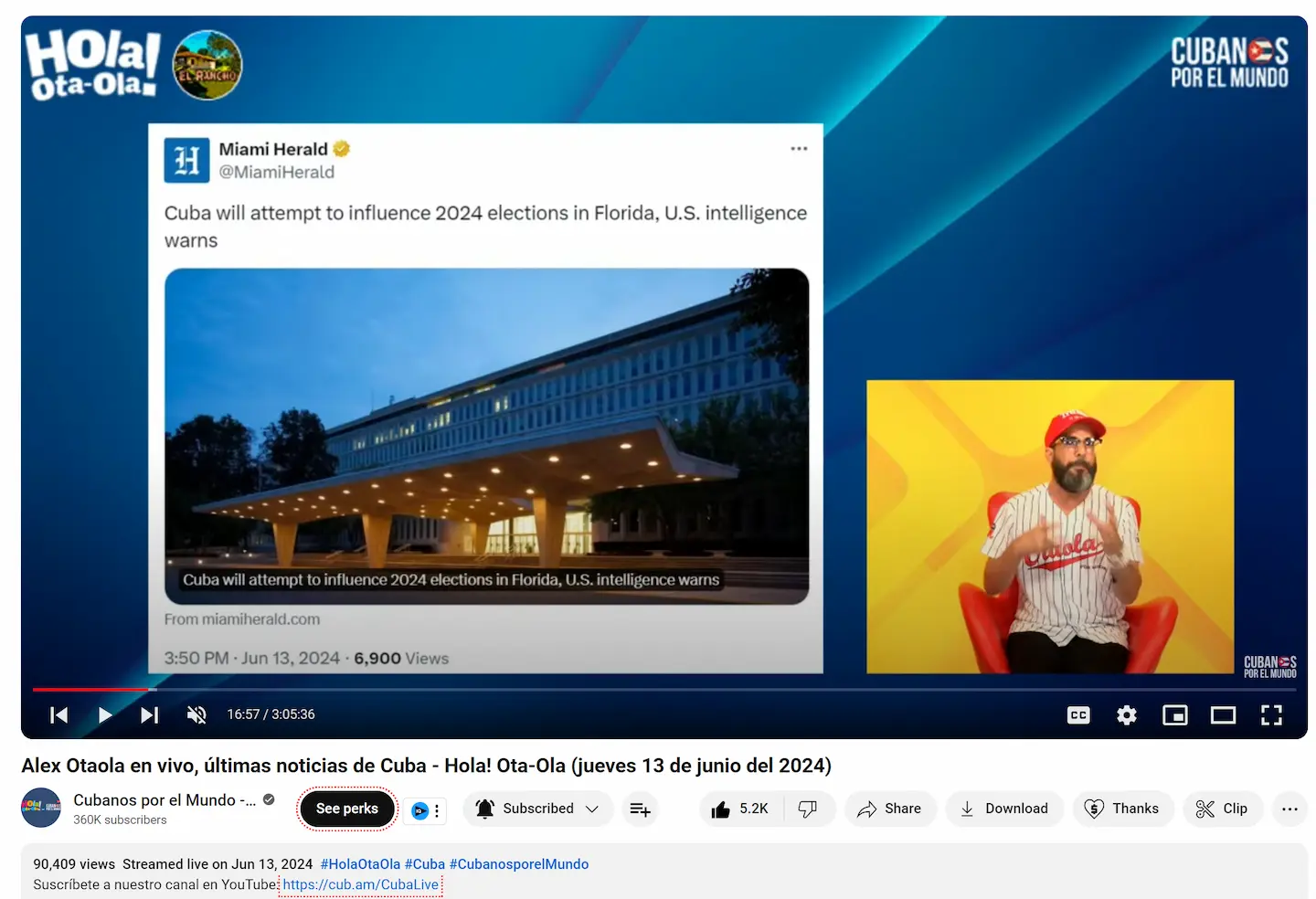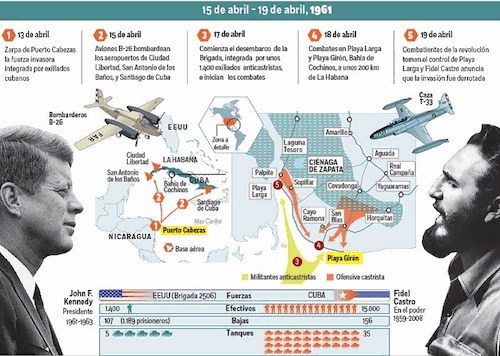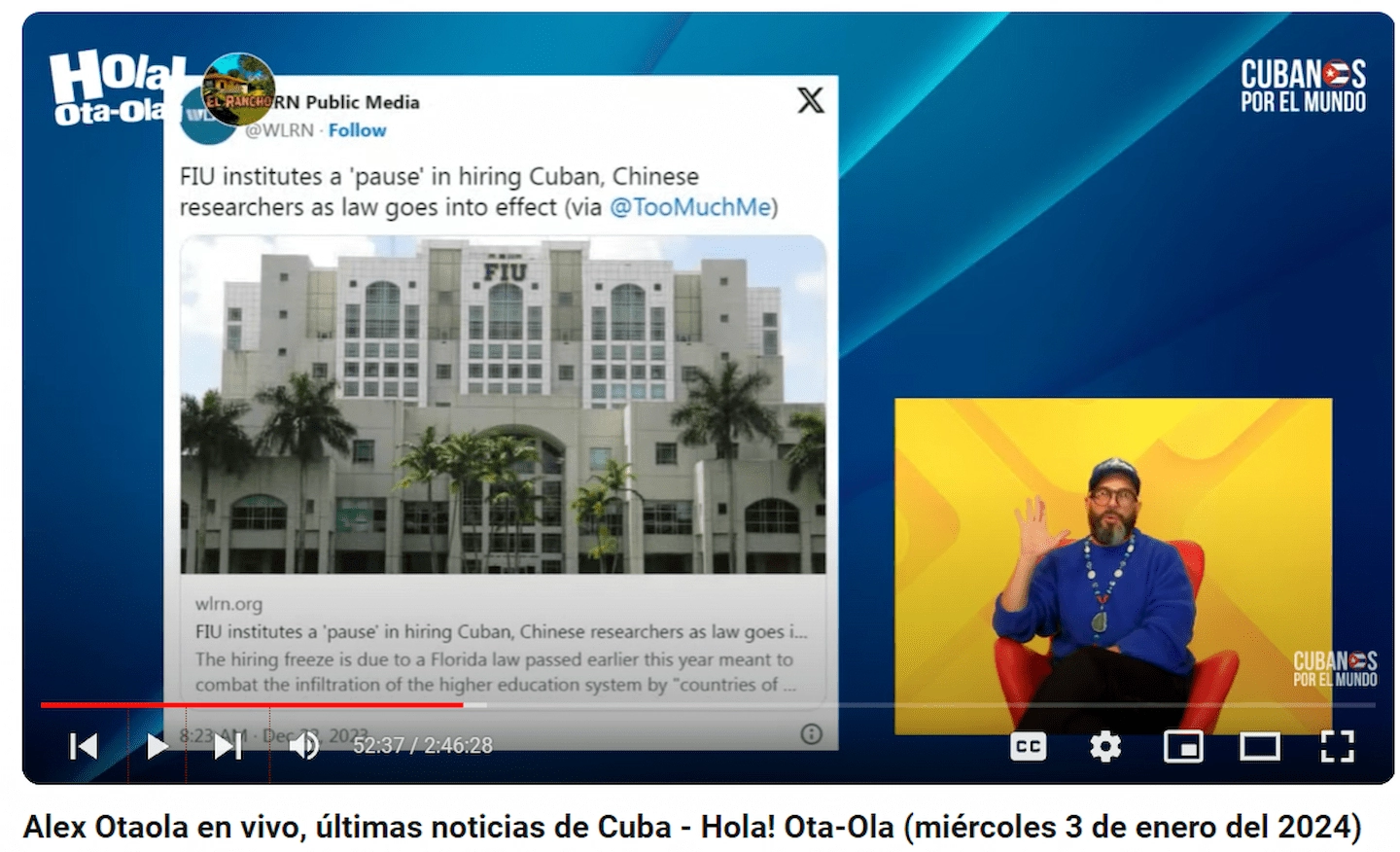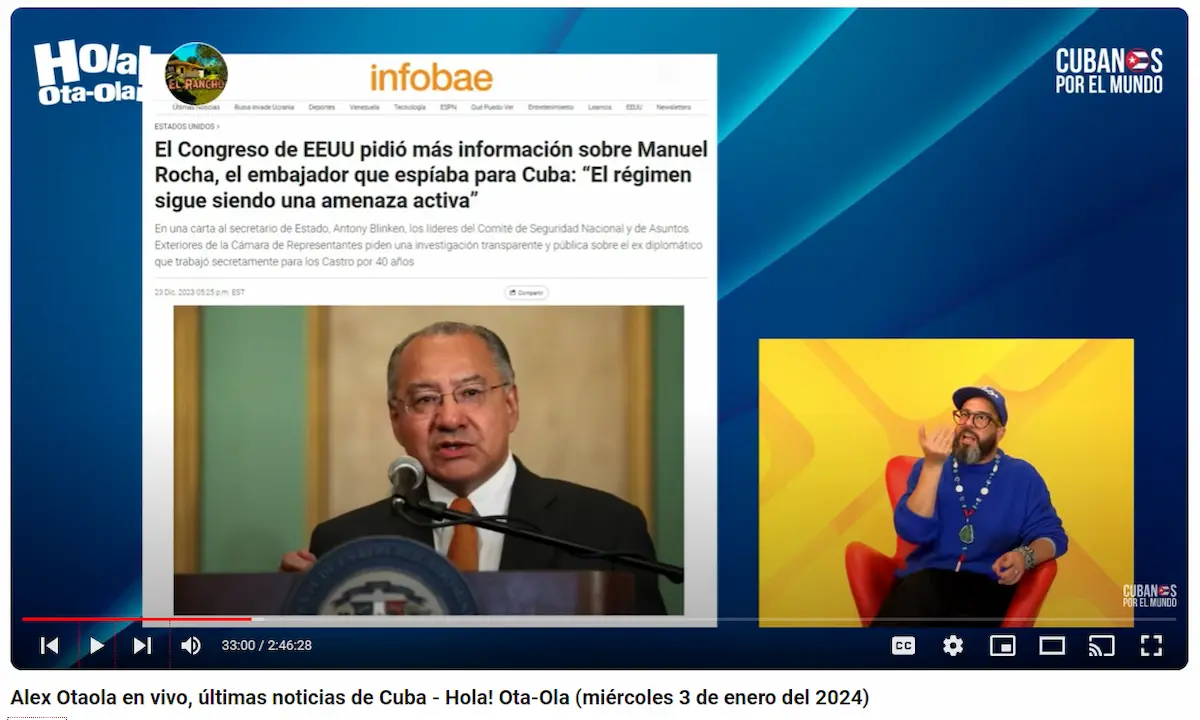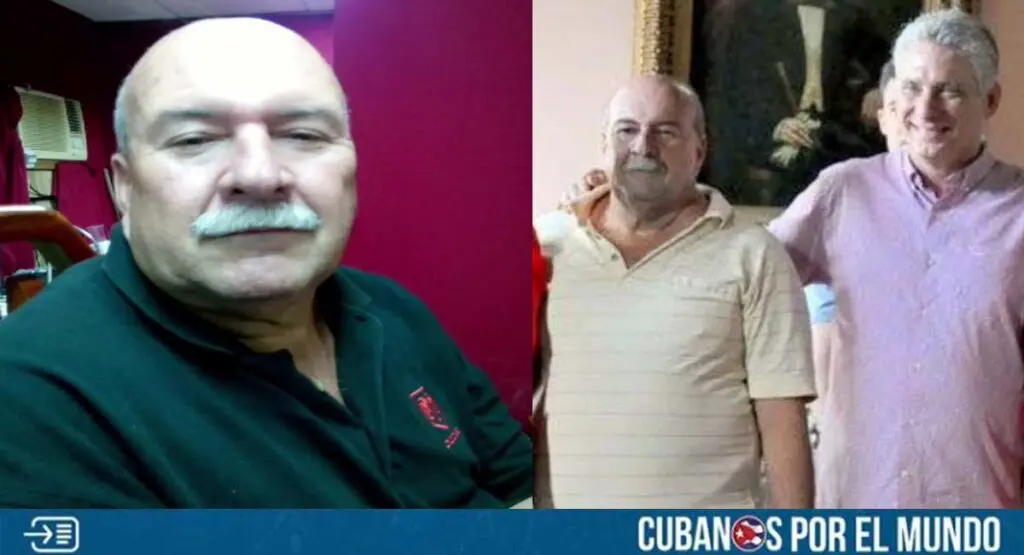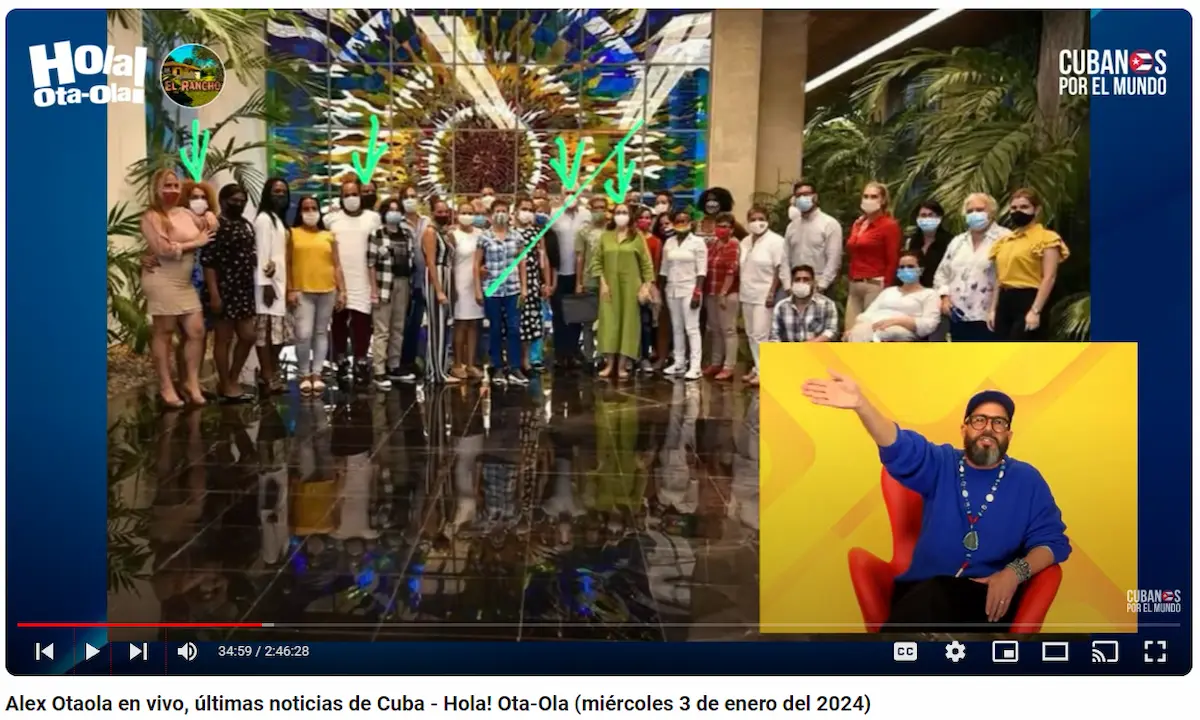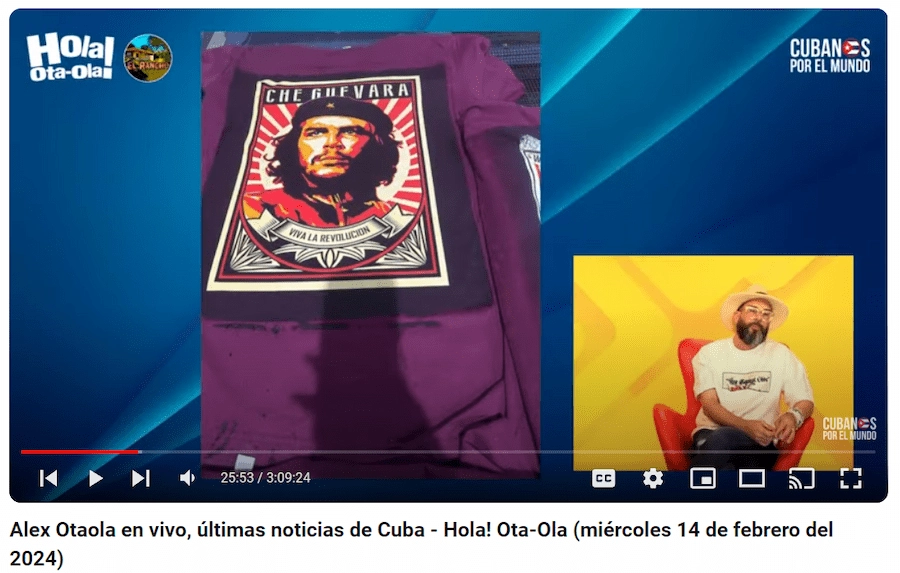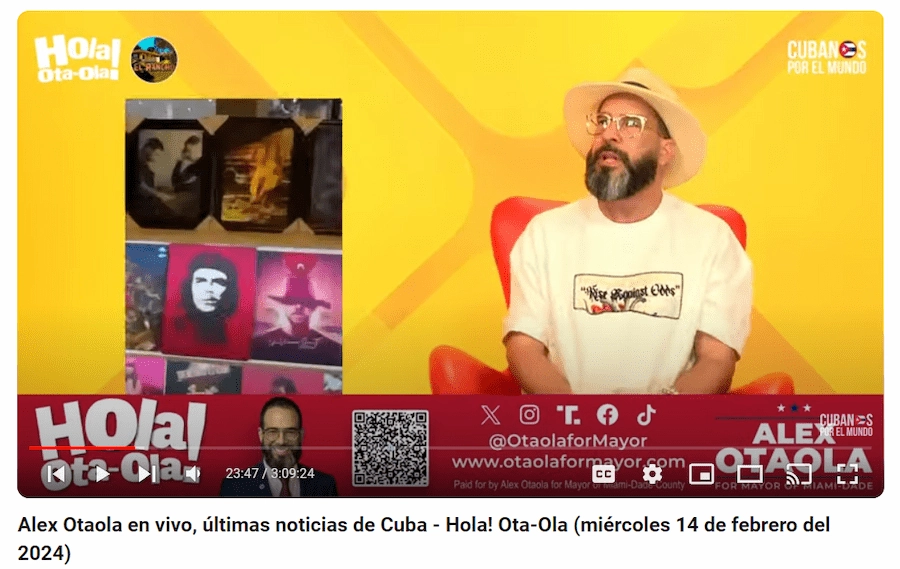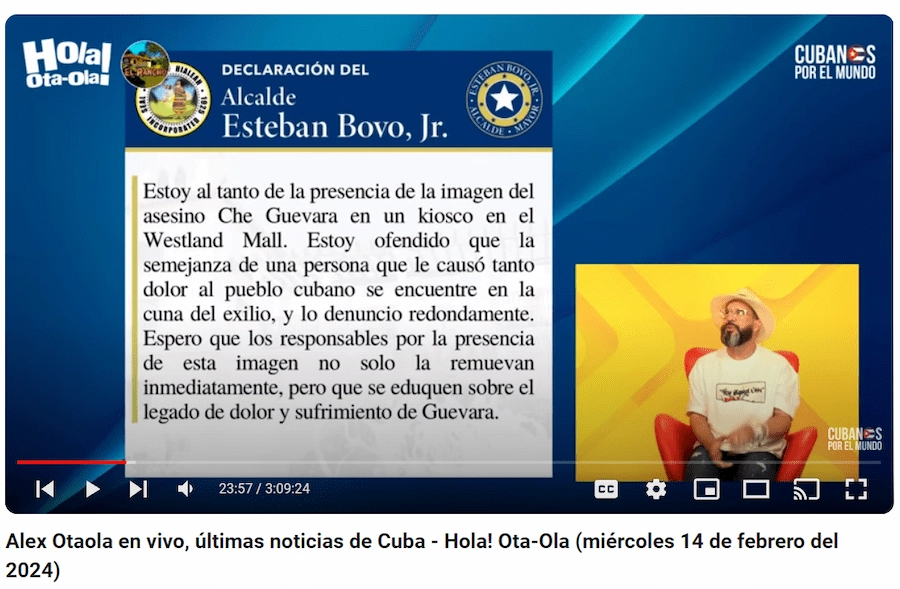|
Getting your Trinity Audio player ready... |
Tabla de Contenido/ Table of Contents
- 1 Miami-Dade – Florida – USA: A Refuge for Cuban Agents Under a Permissive Law? At the Heart of the Cuban Exile in the United States
- 1.1 Political Efforts and Resistance
- 1.2 Hugo Cancio and Katapulk Autos: The Business of Importing Vehicles to Cuba Under the U.S. Policy Umbrella
- 1.3 Who Can Import Vehicles to Cuba?
- 1.4 The Process: From Miami to Havana in 2 Weeks
- 1.5 Benefits Controlled by the Regime
- 1.6 Controversies and Links to the Regime
- 1.7 Criticism from Miami-Dade
- 1.8 A Business Under the Spotlight
- 1.9 Infiltrated Agents and Economic Support for the Regime. Miami-Dade and Florida: A Refuge for Cuban Agents Under a Permissive Law?
- 1.10 Artists, Agencies, and Private Flights: The Money Laundering Machine
- 1.11 Specific Cases Exposed:
- 1.12 Agencies Under Scrutiny:
- 1.13 Private Flights Under Investigation:
- 1.14 Government Inaction: Negligence or Hidden Interests?
- 1.15 The Tampa Case: A Symbol of Complicity
- 1.16 Daniella Levine Cava, Mayor of Miami-Dade
- 1.17 Scandal at Miami International Airport: Cuban Officials Access Sensitive Areas, Drawing Criticism and Shocking the Mayor
- 1.18 Political and Diplomatic Context:
- 1.19 Call for Federal Investigation:
- 1.20 Political Pressure from Congress:
- 1.21 A Needless Risk:
- 1.22 Hialeah: The Emblematic City and Center of the Cuban Exile Community
- 1.23 Soft Policies and Questionable Alliances
- 1.24 The Biden Era: Easing Restrictions Amid Crisis
- 1.25 Fear Within the Regime Amid a Potential Political Shift
- 1.26 The Castro Infiltration Network: Cuban G2 Operations and Their U.S. Allies
- 1.27 Impact and Objectives of the Infiltration Network:
- 1.28 A Call to Action from the Cuban Exile Community
Miami-Dade – Florida – USA: A Refuge for Cuban Agents Under a Permissive Law? At the Heart of the Cuban Exile in the United States
Miami-Dade, the heart of the Cuban exile in the United States, has become an epicenter of political tensions due to an apparent leniency toward the entry and residency of alleged agents of the Cuban regime on U.S. soil. Despite efforts by figures like former Senator Marco Rubio—now the new U.S. Secretary of State—and activist Alexander Otaola, who has spent eight years denouncing this situation, the arrival of individuals linked to Cuban state security continues. With open borders under the Biden administration, critics argue the phenomenon has turned “chaotic,” while local governments look the other way.
Political Efforts and Resistance
Since 2016, key Florida figures like Senator Marco Rubio have worked to prevent collaborators of the Cuban dictatorship from settling in the U.S.
However, it was activist Alexander Otaola who, during Donald Trump’s first term, created and personally delivered the so-called “Red List” (Lista Roja) to the former president. This document identified alleged agents, enforcers, and frontmen of the Cuban regime residing in the U.S. Under the Trump administration, the list spurred actions such as the expulsion of diplomats tied to Cuban intelligence and sanctions against companies linked to the military conglomerate GAESA.
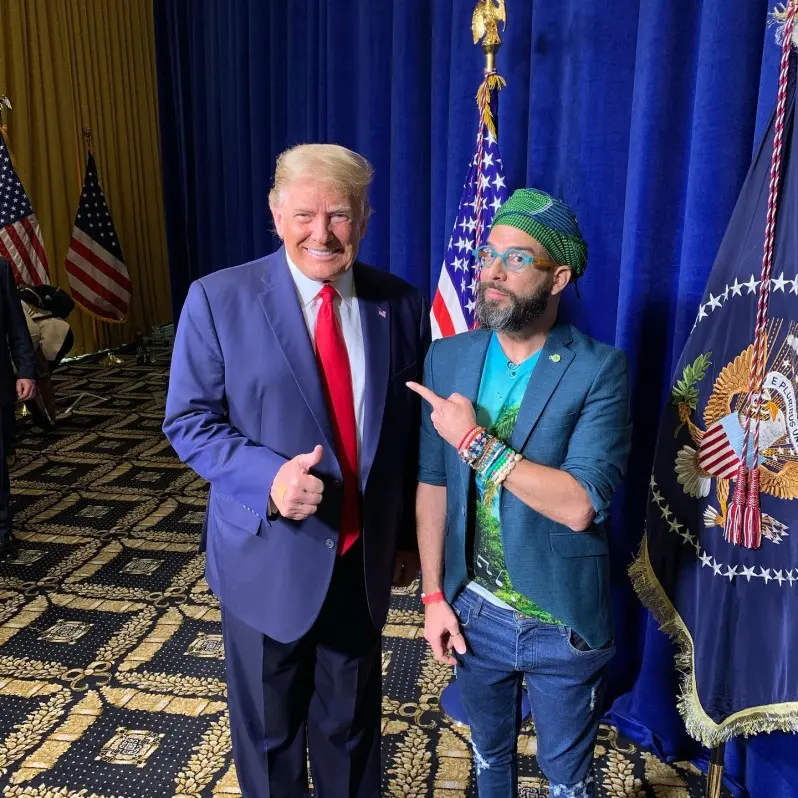
Yet, with the arrival of the Biden administration in 2021, pressure against the Castro regime waned. Policies like easing travel and remittance restrictions, along with removing Cuba from the list of “non-cooperative countries against terrorism,” drew criticism. “While Biden opened doors, Otaola kept denouncing in the streets that these agents operated here with impunity,” recalled a member of the Foundation for Human Rights in Cuba.
Now, with Trump’s return to the presidency in 2025 and Marco Rubio in a key role as Secretary of State, a crackdown is expected. Proposed measures include:
- Reactivating and expanding the updated Red List with new names.
- Pressuring to deport or prosecute those sanctioned in the original list.
- Reviewing OFAC licenses for companies like Katapulk Autos, accused of funding the regime.
Meanwhile, the community demands concrete action: “Speeches aren’t enough. Investigate, expel these henchmen.”
The Challenge
Under Biden, dozens of alleged operatives reportedly entered as “migrants,” according to intelligence reports. The question is whether a potential Trump-Rubio administration will have the political will to prioritize this issue… or if it will remain another broken promise.
This list, delivered to former President Donald Trump during his first term, included names of alleged Cuban agents and enforcers residing illegally in the country. However, activists like Otaola claim that, despite warnings, these individuals continue operating with impunity, mocking—in their words—the authorities.
On January 28, 2025, Otaola led a caravan to Washington to demand harsher sanctions against Cuba and the revival of the Red List. “It’s unacceptable that those who torture in Havana live here, funding the regime through remittances and money laundering.”
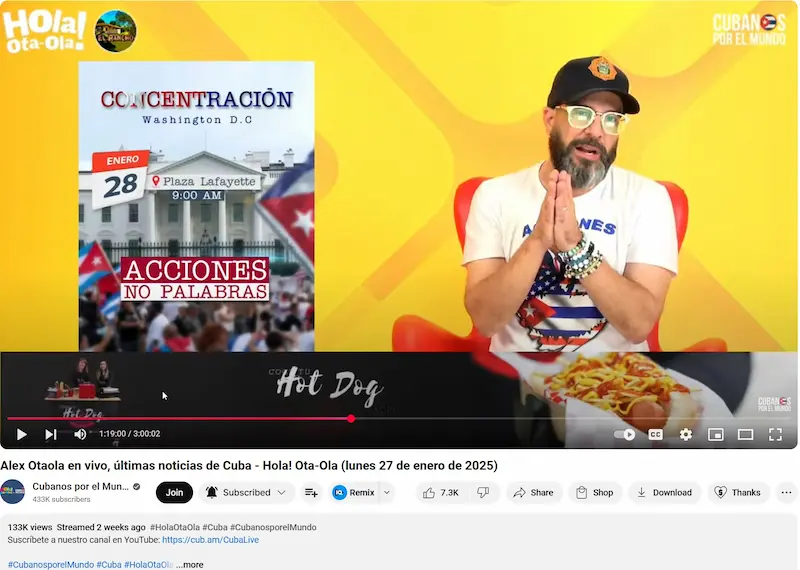
Local Complicity: The CubaMax Case and the Move to Tampa
One of the most controversial examples is CubaMax, a remittance company accused of being an economic arm of the Cuban government in Miami. Although its operations are legal, exile organizations claim it diverts funds to “fill the coffers of the narco-Castro dictatorship.” Activists question how it operates without restrictions:
“No one knows which patrons in the local government allow them to keep this service running,” they say.


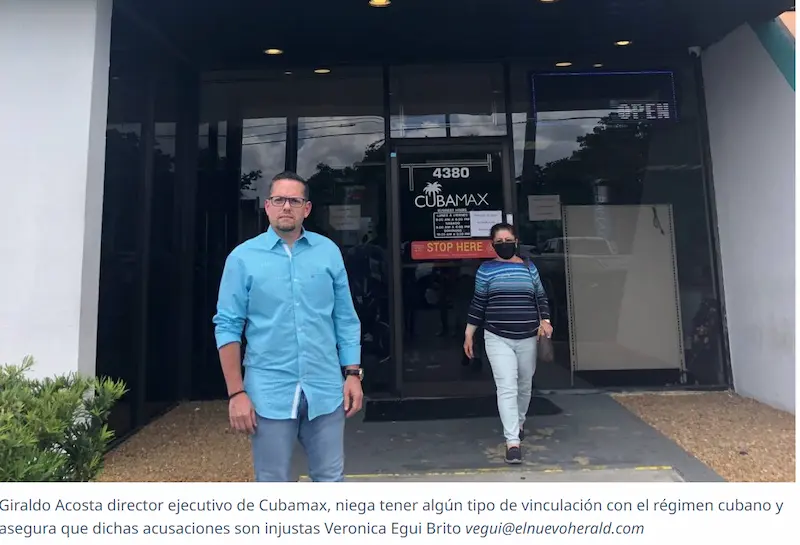
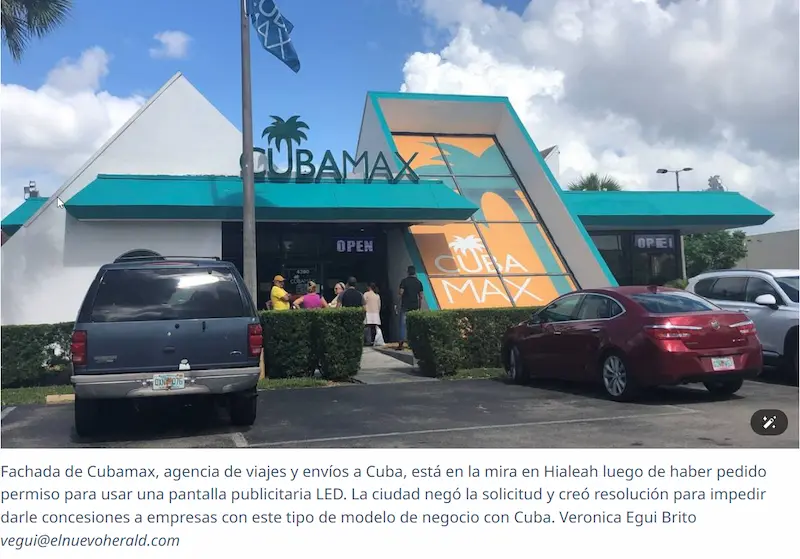
Hugo Cancio and Katapulk Autos: The Business of Importing Vehicles to Cuba Under the U.S. Policy Umbrella
Katapulk Autos: A Commercial Bridge to the Island
Hugo Cancio, a Cuban-American businessman with historical commercial ties to the Havana regime, has positioned his company Katapulk Autos as a key player in importing vehicles to Cuba from Miami. Through his platform, Cancio offers services that, according to critics, “normalize transactions with a sanctioned regime” and fuel the economy of a state accused of systematic human rights violations.
Who Can Import Vehicles to Cuba?
According to Katapulk Autos, operations are open to:
- Legal entities: MSMEs, cooperatives, embassies, foreign companies in Cuba, NGOs.
- Natural persons: Permanent residents in Cuba, including foreigners residing on the island.
This model, backed by a license from the U.S. Office of Foreign Assets Control (OFAC), allows Katapulk to operate legally. However, exile organizations claim it facilitates the flow of resources to entities controlled by the Communist Party.
The Process: From Miami to Havana in 2 Weeks
Katapulk Autos promises to deliver vehicles to Cuba in less than 15 days, managing the entire process:
- Purchase in Miami: The customer chooses from available cars or requests a new one (from electric cars to agricultural machinery).
- Maritime shipping: Includes insurance, freight, and customs procedures.
- Delivery in Cuba: Coordinated with state importers such as DIVEP and IMPEXPORT, which are linked to the Cuban government.
Benefits Controlled by the Regime
New Cuban policies (effective since November 2024) reduce taxes on motorcycles and allow natural persons to acquire up to 6 vehicles in 5 years. According to analysts, this measure aims to attract foreign currency from “entrepreneurs” abroad.
Controversies and Links to the Regime
- OFAC under scrutiny: The license granted to Katapulk allows the export of new vehicles (from 2020 onwards) and machinery. However, critics argue that these goods end up in the hands of state enterprises or elites linked to the Cuban Communist Party (PCC).
- Hugo Cancio: Ally or facilitator? Cancio, founder of Katapulk, has been accused by the exile community of operating as a “covert lobbyist” for Havana. In 2022, his company Fuego Enterprises was linked to transactions with GAESA, the Cuban military conglomerate.
- Payments in MLC: Cuban customers must pay tariffs in Freely Convertible Currency (MLC), a currency controlled by the Cuban Central Bank, further reinforcing the regime’s financial monopoly.
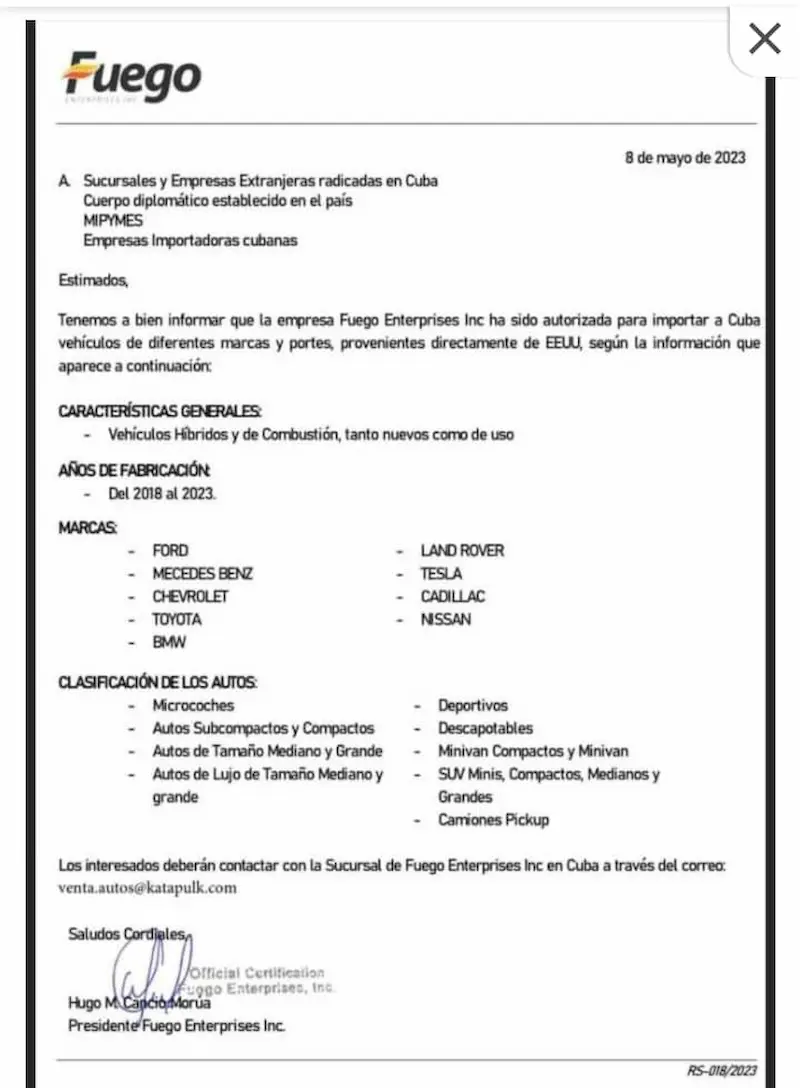
Criticism from Miami-Dade
Exile organizations denounce that companies like Katapulk Autos operate with impunity in Miami-Dade County:
“While the Cuban people suffer from blackouts and hunger, these businesses whitewash the dictatorship’s image and finance its repressive machinery,” stated a spokesperson.
U.S. government representatives and congress members have demanded an investigation into whether Katapulk complies with the restrictions of the Helms-Burton Act, which prohibits trade with entities expropriated from U.S. nationals.
A Business Under the Spotlight
Katapulk Autos exemplifies the complex web of interests connecting Miami and Havana. While Cancio defends his model as “supporting Cuban entrepreneurs,” the exile community insists it is just another link in the Castro regime’s survival chain.
The question remains:
How does a company based in Miami-Dade operate so close to the “sanctuary of exile” without facing consequences?
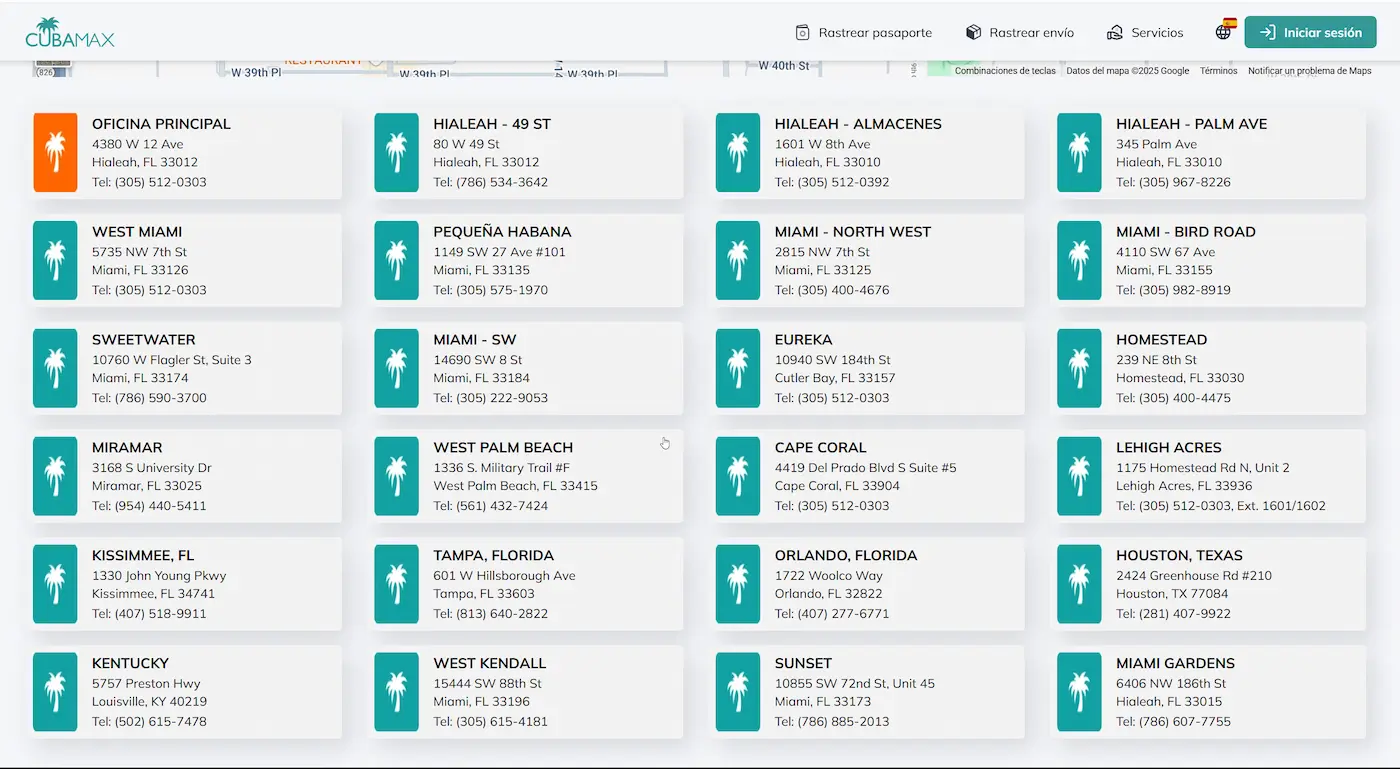
Infiltrated Agents and Economic Support for the Regime. Miami-Dade and Florida: A Refuge for Cuban Agents Under a Permissive Law?
According to reports from exile organizations and intelligence sources, dozens of alleged Cuban agents have managed to settle in Florida using questionable methods: some entered by taking advantage of the Biden administration’s flexible immigration policies, while others used family reunification programs. However, in all cases, they allegedly concealed their true political affiliation upon entering the U.S., omitting their status as active members of the Cuban Communist Party (PCC) and loyalists to the Castro-communist dictatorship.
“These individuals are not ordinary migrants; they are infiltrated operatives who lie at entry ports to bypass controls. Their goal is to monitor the exile community and channel resources to the regime,”
The concern lies in the fact that, once inside the country, these agents would operate under clean identities, facilitating intelligence operations, money laundering, and propaganda in favor of Havana.
These individuals would not only monitor the Cuban-American community but also funnel resources to Havana through shell companies and money laundering operations. Most alarmingly, according to reports, some of them would enjoy protection from local authorities, who avoid investigating their ties to the regime.
Many shipping agencies for merchandise to Cuba have moved to Tampa, a city that, according to intelligence reports from exile groups, harbors most of the infiltrated Cuban security agents and their supporters. Tampa has not only become an operational center for money laundering and illegal remittance transfers but also a key point for the regime’s covert diplomacy.
In fact, Cuba’s ambassador to Washington, Lianys Torres Rivera, has repeatedly traveled to this city, where there was even an attempt to establish a Cuban consulate in 2022, an initiative that was temporarily blocked due to political pressure.
Artists, Agencies, and Private Flights: The Money Laundering Machine
A new front of concern is the role of Cuban artists and public figures who, according to reports, act as intermediaries in money-laundering operations.
“They no longer just extract funds; they invest them within the U.S., buying properties and creating shell companies,” explained an independent investigator linked to the exile community.
These artists, some with explicit ties to the regime, allegedly use their status to launder capital from illicit activities, taking advantage of the lack of scrutiny in sectors such as entertainment and art.
Specific Cases Exposed:
- José Gabriel Ramírez (CMHW radio host, Camajuaní, Villa Clara): Linked for decades to the Ministry of the Interior (MININT) and the Cuban Communist Party (PCC). According to reports, Ramírez, with family in Miami, allegedly used his influence to obtain visas and settle in the U.S., despite his history as a regime propagandist.
“It is an insult that those who repressed us now live here with impunity,” said a former political prisoner during a protest in Hialeah.
Agencies Under Scrutiny:
- Destiny Travel and JCM Services: Under investigation for their alleged role in sending unsupervised packages to Cuba, with some reports accusing them of transporting drugs or illicit capital.
- Juan Carlos Montoya, owner of JCM Services, declared on social media:
“Neither Otaola nor Marco Rubio will stop me,”—hinting at possible connections with Havana officials.
https://www.instagram.com/reel/DFoNoiGOR4U/?igsh=MWFpMnA2bmxrcGhmdA==
Private Flights Under Investigation:
- Suspicious Aircraft:Flight N228
- Conducted frequent flights between Miami, Tampa, and Havana.
- Transported artists such as “Bebecito” —accused of being a regime propagandist—
- Allegedly moved covert funds for clandestine operations.
Government Inaction: Negligence or Hidden Interests?
While Rubio and DeSantis push for federal action, local governments and counties like Miami-Dade and Tampa have avoided taking strong measures. Critics point to possible economic interests or fear of political retaliation.
“It is an insult to the victims of Castroism,” says Otaola, demanding the revocation of residency for these agents and the freezing of their assets.
The Tampa Case: A Symbol of Complicity
Although the plan to open a Cuban consulate was blocked after Florida congressional complaints, the regime’s logistical and financial infrastructure continues to expand in the area.
“Why are those facilitating this not being investigated? There are local officials turning a blind eye,” questioned an exile leader during a recent community assembly.
Daniella Levine Cava, Mayor of Miami-Dade
The Mayor of Miami-Dade, Daniella Levine Cava, faces criticism for her inaction during her five-year tenure.
“She has watched CubaMax grow, heard Otaola’s daily warnings about infiltrated agents crossing the border, and has done nothing,” says the public opinion.

Scandal at Miami International Airport: Cuban Officials Access Sensitive Areas, Drawing Criticism and Shocking the Mayor
Incident and Reactions:
A delegation from the Cuban regime visited sensitive areas of Miami International Airport (MIA), including zones with advanced security technology from the Transportation Security Administration (TSA). This sparked outrage among U.S. officials and criticism from Miami-Dade Mayor Daniella Levine Cava.
The visit, part of a “knowledge exchange” between the TSA and Cuban authorities, included access to 3D X-ray systems designed to detect explosives, according to Diario de las Américas.
National Security Concerns:
Anonymous TSA sources expressed alarm over granting access to representatives of a regime historically linked to hostile governments like Iran, North Korea, and Russia.
“Allowing agents of the Cuban dictatorship in is like opening the door to spies at the heart of one of the country’s most critical airports,” said one official, recalling that Cuba has had intentions to harm U.S. security interests.
During the visit, Cuban officials observed critical technology, prompting concerns over whether they collected data or took photos.
“Opening the door to Cuba also opens it to its enemy allies. This is an unacceptable security breach,” insisted another source.
Mayor Levine Cava’s Response:
Mayor Daniella Levine Cava expressed surprise at the incident, clarifying that the decision was not coordinated with the Miami-Dade Aviation Department (MDAD). She addressed the issue on X (formerly Twitter):
https://twitter.com/MayorDaniella/status/1792907188274385001
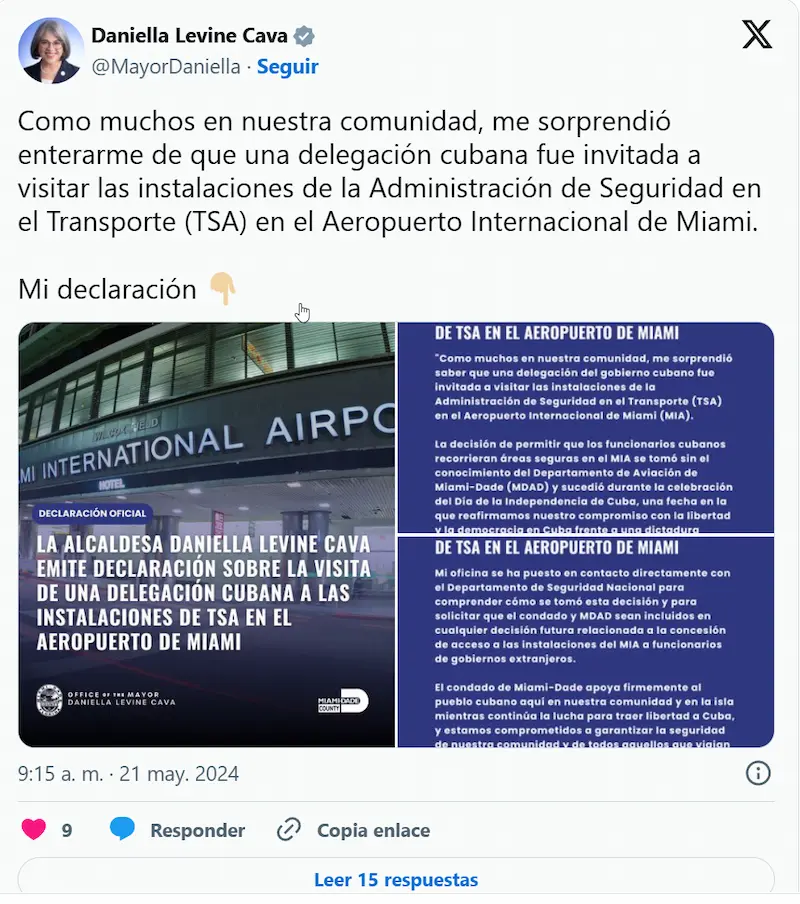
The mayor emphasized that the county had not been consulted regarding the delegation’s access to restricted areas, raising suspicions of possible breaches in federal security protocols.
Political and Diplomatic Context:
The incident occurred just days after the Biden administration removed Cuba from the list of countries that “do not fully cooperate” against terrorism—a move criticized by lawmakers like Congresswoman María Elvira Salazar, who called it “a reward for the oppressive regime.”
The visit also coincided with intelligence reports linking Havana to training insurgent groups in Latin America.
Call for Federal Investigation:
Security experts and Cuban exile leaders demand a federal investigation into the visit’s scope and possible implications.
“How was this allowed without consulting local authorities? This reeks of complicity and negligence,” said a security analyst.
Political Pressure from Congress:
Congresswoman Salazar and other Republicans have pushed for an audit of agreements between TSA and Cuba and to revoke the special status granted by the White House.
“We cannot normalize relations with a regime that remains a threat,” insisted Salazar.
A Needless Risk:
The Cuban officials’ access to sensitive technology at MIA exposes contradictions in Biden’s Cuba policy and presents real risks to national security.
As the Cuban-American community demands answers, the incident reignites the debate over how far engagement with authoritarian regimes can compromise U.S. security interests.
Hialeah: The Emblematic City and Center of the Cuban Exile Community
In this very city, Brian Calvo, a candidate for mayor of Hialeah, unsuccessfully tried to push for sanctions against CubaMax.
“It became clear that there are powerful forces protecting these interests,” declared Calvo after failing to impose sanctions on these shell companies acting as fronts for the Cuban dictatorship.
Soft Policies and Questionable Alliances
Critics point to a possible affinity between Democratic administrations and the Cuban regime, evidenced by decisions such as those made by the Obama administration, which in 2017 ended the “Wet Foot, Dry Foot” policy, facilitating the deportation of Cuban migrants and allowing companies like Western Union to resume business with the island.
The Biden Era: Easing Restrictions Amid Crisis
The Biden era has deepened this trend, according to activists. As the Cuban regime faces its worst economic crisis, the federal administration has eased restrictions on remittances and travel—measures that, according to the exile community, “directly fund the dictatorship.”
“Democrats prefer to align with hemispheric tyrannies rather than defend American values,” claims this argument, backed by declassified USAID files.
Fear Within the Regime Amid a Potential Political Shift
However, the landscape could change with the possible return of Marco Rubio to a position of influence in the White House. In response, reports indicate that regime operatives and their supporters are “panicking”—yet, ironically, they are not fleeing to allied countries but are seeking refuge in the heart of the Cuban exile: Miami-Dade.
“It’s an insult. In our own markets, victims and perpetrators coexist,” the community laments.
The Castro Infiltration Network: Cuban G2 Operations and Their U.S. Allies
At the County Level: Miami-Dade, the Epicenter
- Key Neighborhoods: Little Havana, Hialeah, Doral, and Kendall, where front companies like CubaMax and Katapulk Autos operate, linked to remittance and goods transfers to Cuba.
- Cultural Centers: Some associations and cultural events are suspected of serving as fronts to recruit informants and monitor the exile community.
- Local Government Infiltration: Reports claim that low- and mid-level county officials have facilitated permits for businesses tied to the regime.
At the State Level: Florida, Corridor of Influence
- Tampa: Now a key logistics center, it hosts maritime shipping companies (e.g., Destiny Travel) and was the site of the failed attempt to open a Cuban consulate in 2022.
- Orlando: Alleged infiltration in the tourism sector, with presumed agents working in car rental agencies and hotels to monitor Cuban-American tourists.
- Public Universities: Reports indicate the recruitment of students at institutions like FIU and USF to form pro-regime support groups.
- Agriculture: In rural areas of southern Florida, intermediaries linked to the Cuban intelligence agency (G2) purchase agricultural supplies, which are later diverted to Cuba through shell companies.
At the National Level: Networks in Multiple States
- New Jersey and Texas: Cuban communities in Union City and Houston are monitored by covert Committees for the Defense of the Revolution, which report regime critics back to Havana.
- Washington, D.C.: Cuban diplomats at the embassy coordinate with lobby groups to influence U.S. immigration and economic policies.
- New York: Pro-regime artists and academics promote narratives of “dialogue” with the regime at institutions like Columbia University.
Impact and Objectives of the Infiltration Network:
- Funding the Regime: It is estimated that these networks divert approximately $1.2 billion annually to Cuba through remittances, businesses, and money laundering.
- Silencing Dissent: Intimidation campaigns against independent journalists and dissidents.
- Normalizing Relations: Coordinated social media and media campaigns to pressure the U.S. to lift sanctions on the regime.
A Call to Action from the Cuban Exile Community
The situation reflects a clear conflict between federal immigration policy and national security. For the Cuban-American community, the permissiveness in Miami-Dade, the complicity in Tampa, and the inaction of figures like Daniella Levine Cava are not just risks—they are a betrayal of decades of struggle for freedom.
While shell companies like CubaMax flourish, infiltrated agents operate with impunity, and private flights like N228 continue to link the U.S. with the Cuban regime, the exile community demands concrete actions:
- ✅ Thoroughly investigate agencies like Destiny Travel and JCM Services, as well as suspicious private flights.
- ✅ Revoke visas and residency of former regime officials and collaborators, such as José Gabriel Ramírez.
- ✅ Pressure local governments to impose sanctions on companies involved in money laundering.
- ✅ Restore strict immigration policies, such as “Wet Foot, Dry Foot”, to prevent further infiltration.
“Enough of a soft hand with dictators and their puppets on American soil. Enforce the law!” Otaola demanded in his latest broadcast.
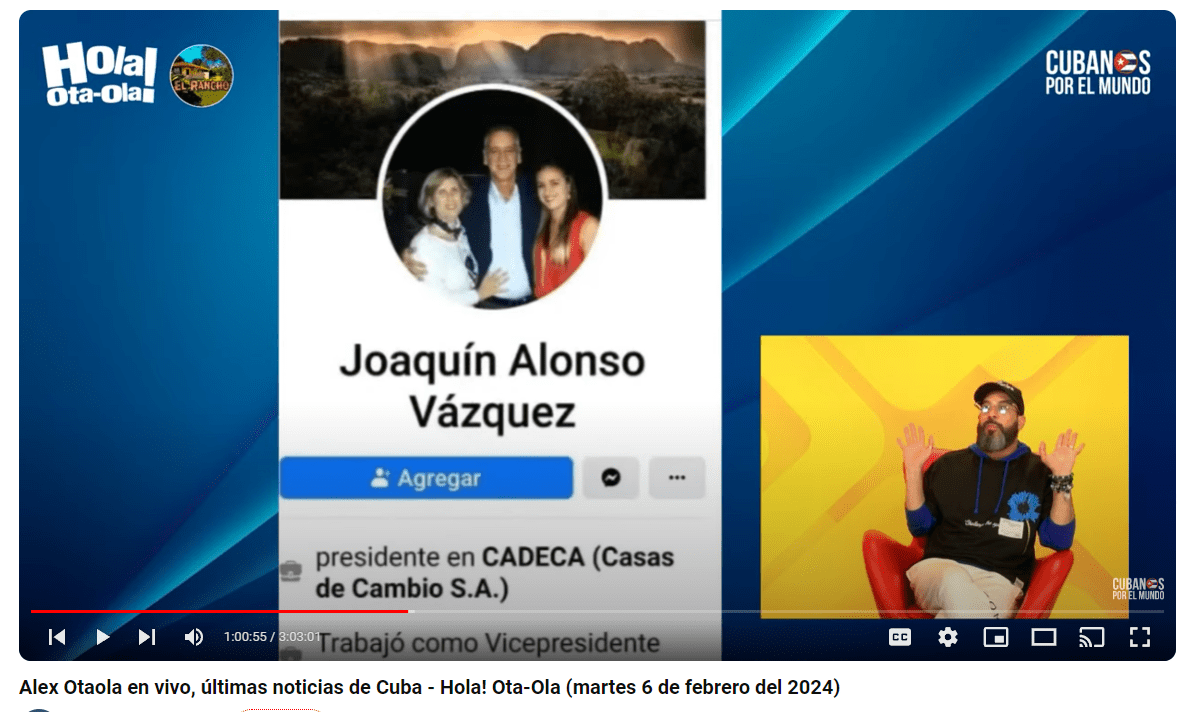
Want more post like this?
Head over to our homepage for the latest updates from South Florida and beyond:

